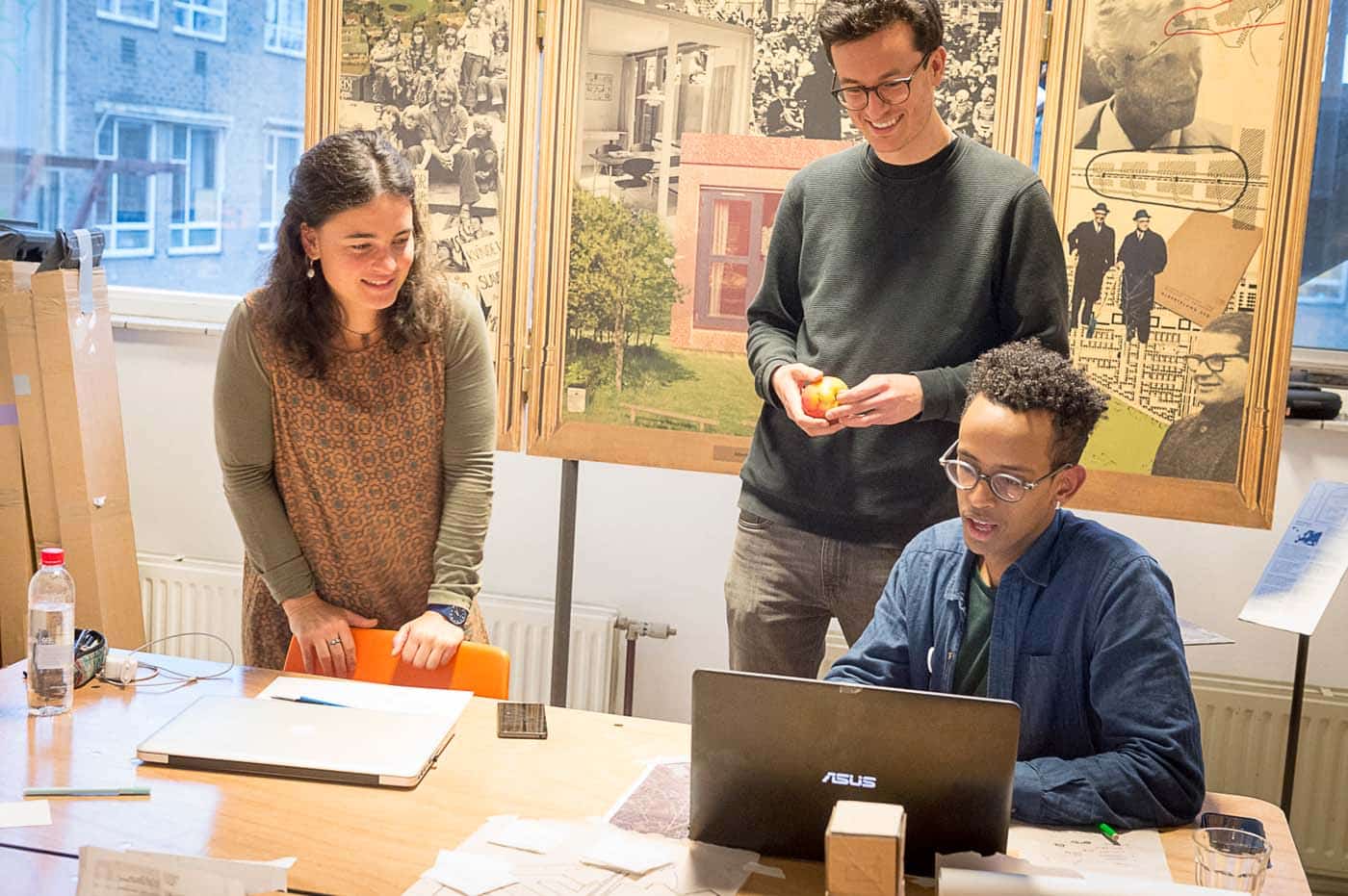PREVIOUS COURSES
Exploring Superdiversity with Crimson, photographer Florian Braakman and the Niteshop by Concrete Blossom. 27 May – 14 June 2024.
Superdiversity Studio
Because of the port and its connection with the rest of the globe, Rotterdam has always attracted people from all over the world. Nowadays over 170 different nationalities call the city their home. The population has become so diverse that Rotterdam has become part of a worldwide family of Majority-Minority cities – meaning that more than half of the population has a migration background. And, not just the number of nationalities has increased: as generations pass, also the diversity within the different migrant groups has become increasingly complex and as anthropologist call it: Superdiverse. In this workshop we will be working together with Crimson Historians & Urbanists, photographer Florian Braakman and the Niteshop by Concrete Blossom. You will learn and develop methods for interviewing people, to record locations and conversations, to interpret what we see and to retell it in pictures, maps and stories, with the aim to get a deeper understanding of the Superdiverse makeup of the population.
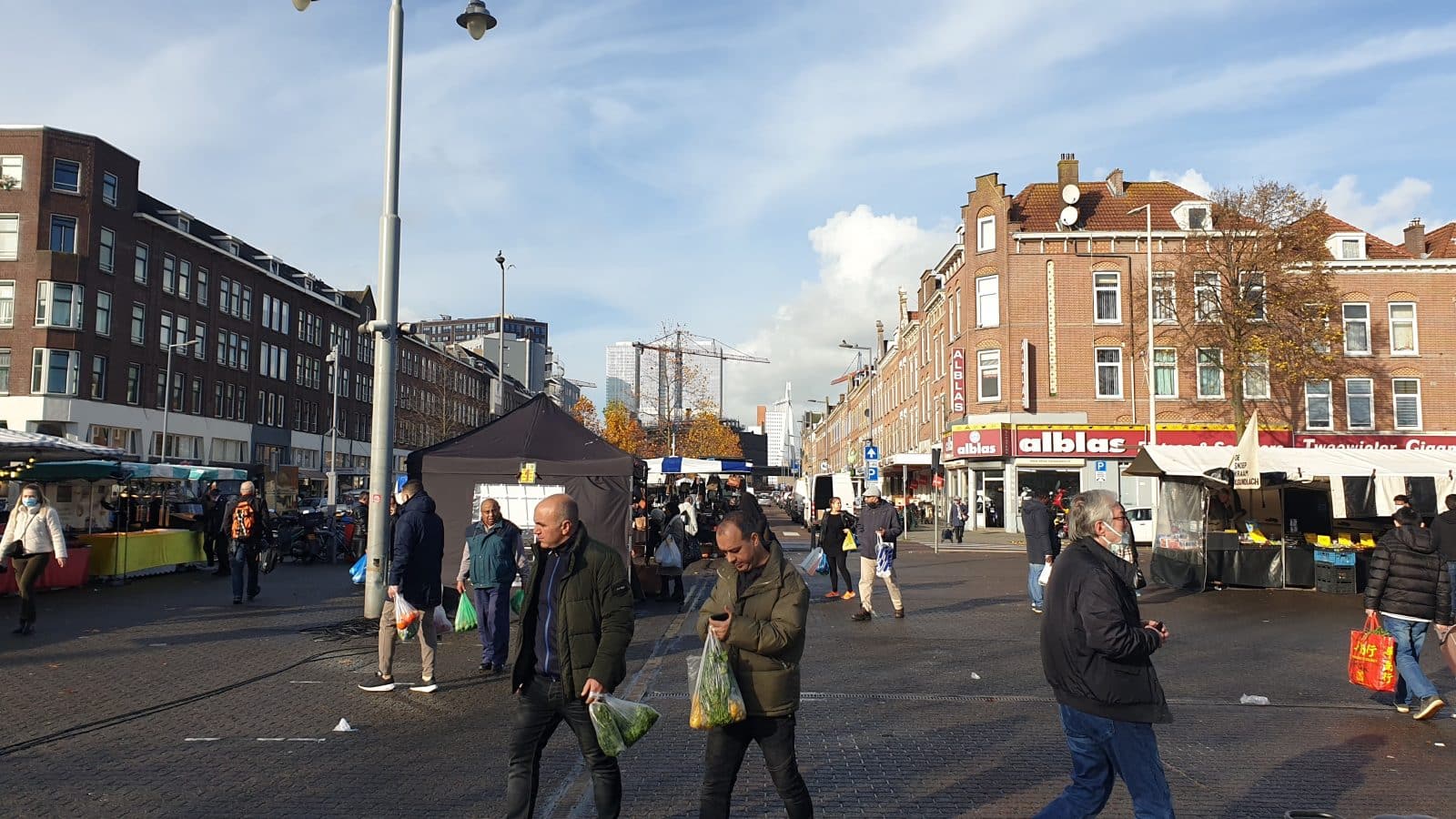
Workshop exploring the predicted effects of a 2,5°C temperature rise on the Netherlands with Dirk Sijmons and Herman Kossmann. 06 – 24 May 2024.
The +2,5 Degree City Studio
During this thematic block, we’ll dive into the Anthropocene – the geological era marking the dominant human impact on the Earth systems. Climate scientists have predicted that if we continue at the current pace with climate measures, we will still end up on a planet that is between 2° and 3° hotter at the end of this century. In these weeks we will map out the predicted effects of a 2,5°C temperature rise on the Netherlands, on the City of Rotterdam and on a number of very specific places in the city. After exploring these effects, we will then use our collective knowledge and that of our guest speakers and scientific literature, to work towards a series of rich and panoramic visual representations of a possible future. The message we try to communicate is that the era of accurate solutions of isolated well defined problems might be over in the bumpy ride ahead. - This block is part of our 12 week programme This is Tomorrow, but also offered as a stand-alone course. More info here
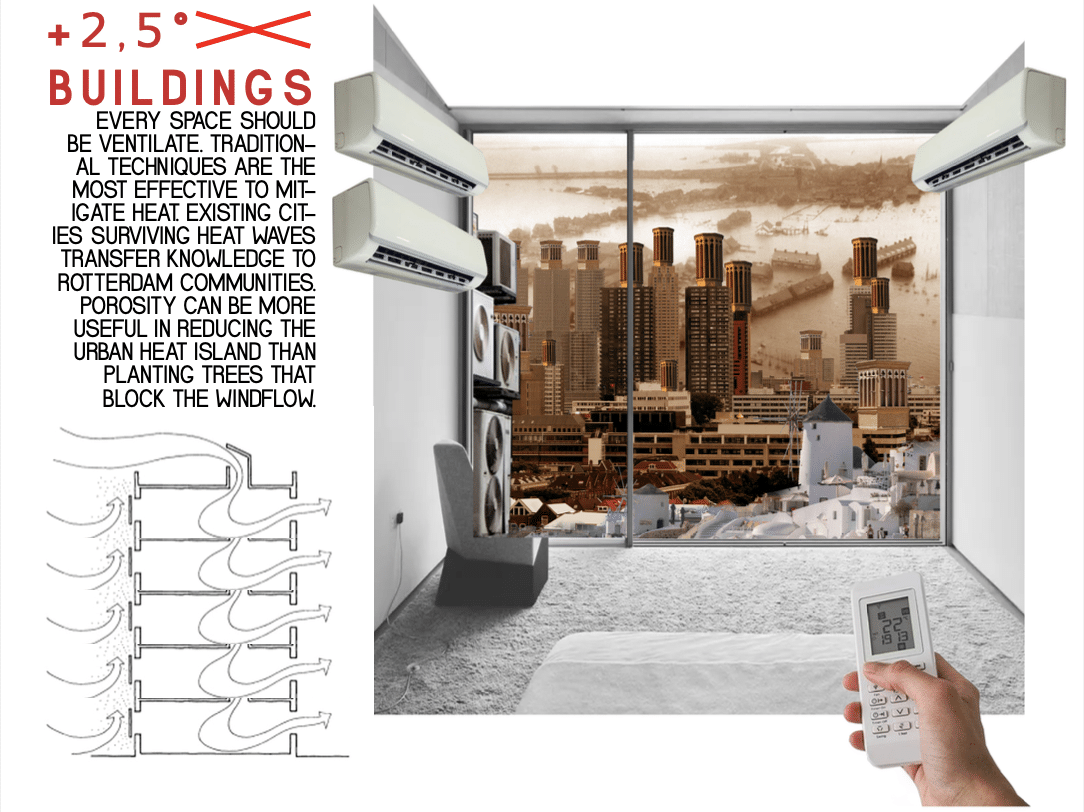
Studio with Loom: practice for cultural transformation, exploring how city dwellers can shape their urban surroundings. 15 April – 03 May 2024.
Right to the city
In this three-week workshop with Loom: practice for cultural transformation, we will collectively unravel and bring together examples of initiatives and collaborative practices that foster fabrics of responsibility. Participants will be invited to research, document and create new “Looking After The City” tactics and modes of collective action for a particular place or area. From spontaneous improvisation, to queering urban space, inventing new forms of commoning or by enforcing alternative urban practices. The workshop also explores how the use of urban space for one person might clash with the needs for another, and how the idea of “the right to the city” might be transformed from an individual right to a collective responsibility and forms of urban care. How do we continue to look after the city and its (more-than-human) dwellers?
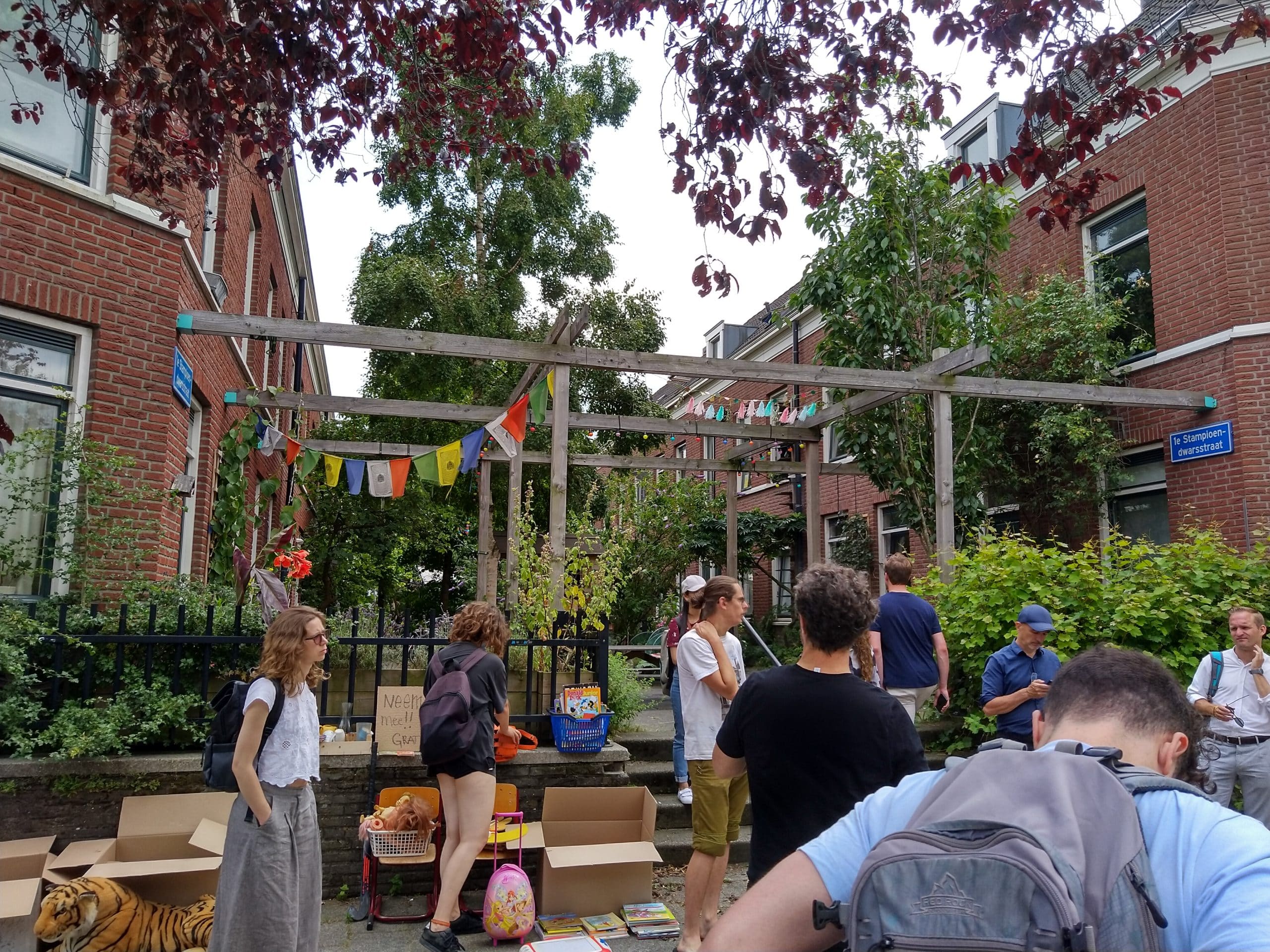
A unique 12-week education programme on contemporary urbanism, dealing with the Anthropocene, Superdiversity and Right to the City, taking place from 01 April till 21 June 2024. Application closed
This is Tomorrow
In the spring of 2024, the Independent School for the City will organise its intensive 3-month course in contemporary urbanism that takes the modern city as its subject and Rotterdam as its testing ground. Participants in the course are confronted with the inescapable contradictions and complexities of the modern city, while focusing on topics such as social inequality and climate change. We will explore these urban dynamics by bringing together different disciplines, from historical research to artistic expression.
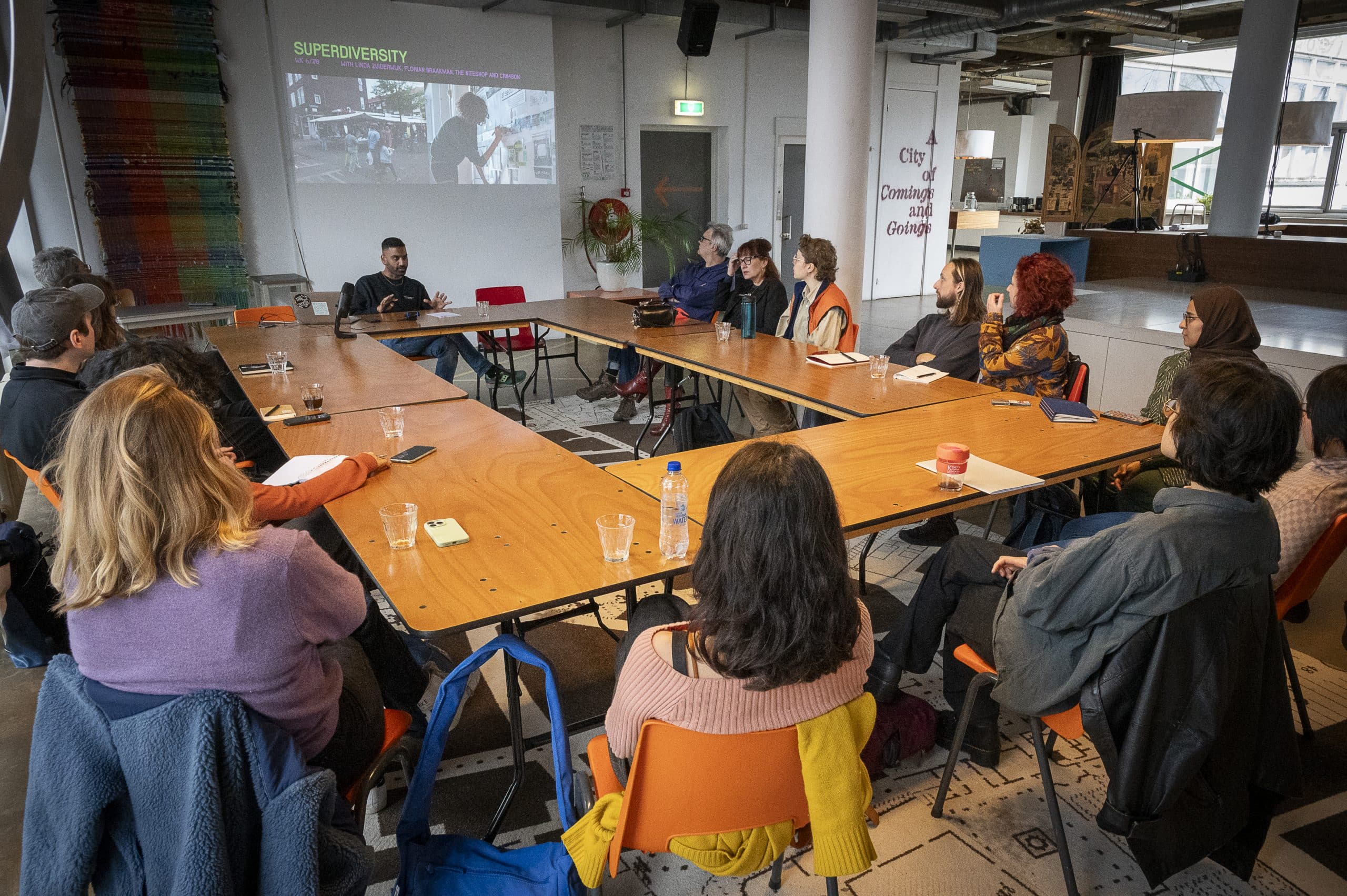
A Community of Learning, specifically developed for employees of the Municipality of Rotterdam. 18 January, 27 February 2024, 21 March 2024 and 11 April 2024.
The Polder of Babel 2024
The Polder of Babel is a community of learning of the Independent School for the City that focuses on the development of cities in relation to today's major social issues. It is a place where policy makers, designers and researchers from different backgrounds come together for inspiration, reflection and the development of new ideas that move Dutch cities forward. As always, the Independent School for the City uses Rotterdam as its research area, but its themes, issues and insights are relevant to many other places in the Netherlands. After a successful first course in the summer of 2021, a second series of meetings is now being organised in 2024 in collaboration with the Municipality of Rotterdam and the New Institute.
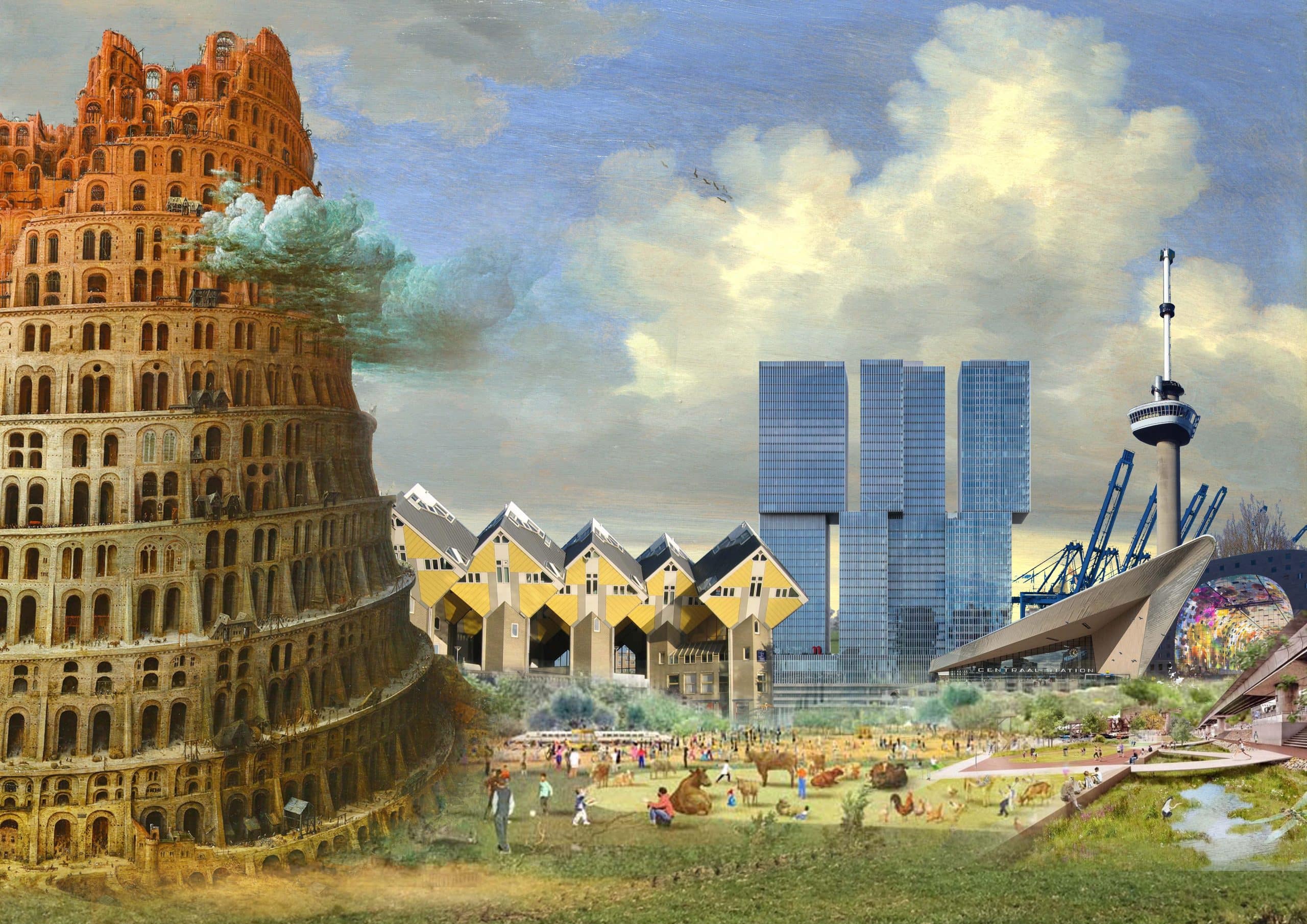
A craftivsm workshop with textile artist Beatrice Waanders that took place on 08, 09 and 10 December 2023.
Urban Wool
For this Craftivism workshop we have teamed up with Beatrice Waanders who is an international renowned textiles artist, based in Rotterdam. Together with Beatrice we will explore how wool could help us stay warm in a time when energy prices are rising. Beatrice travels all around the country to find her wool amongst which from the Sheepflock in Rotterdam. The Rotterdam Sheepflock cultivates the green spots of the city like parcs and soundwalls along the highway in an ecological way to restore natural biodiversity. They produce about 4000 kilos wool per year but there’s no market. Beatrice aims to value this wool again into a precious artwork. Beatrice is unique in even using the colored stamps of the ram as part of the design.
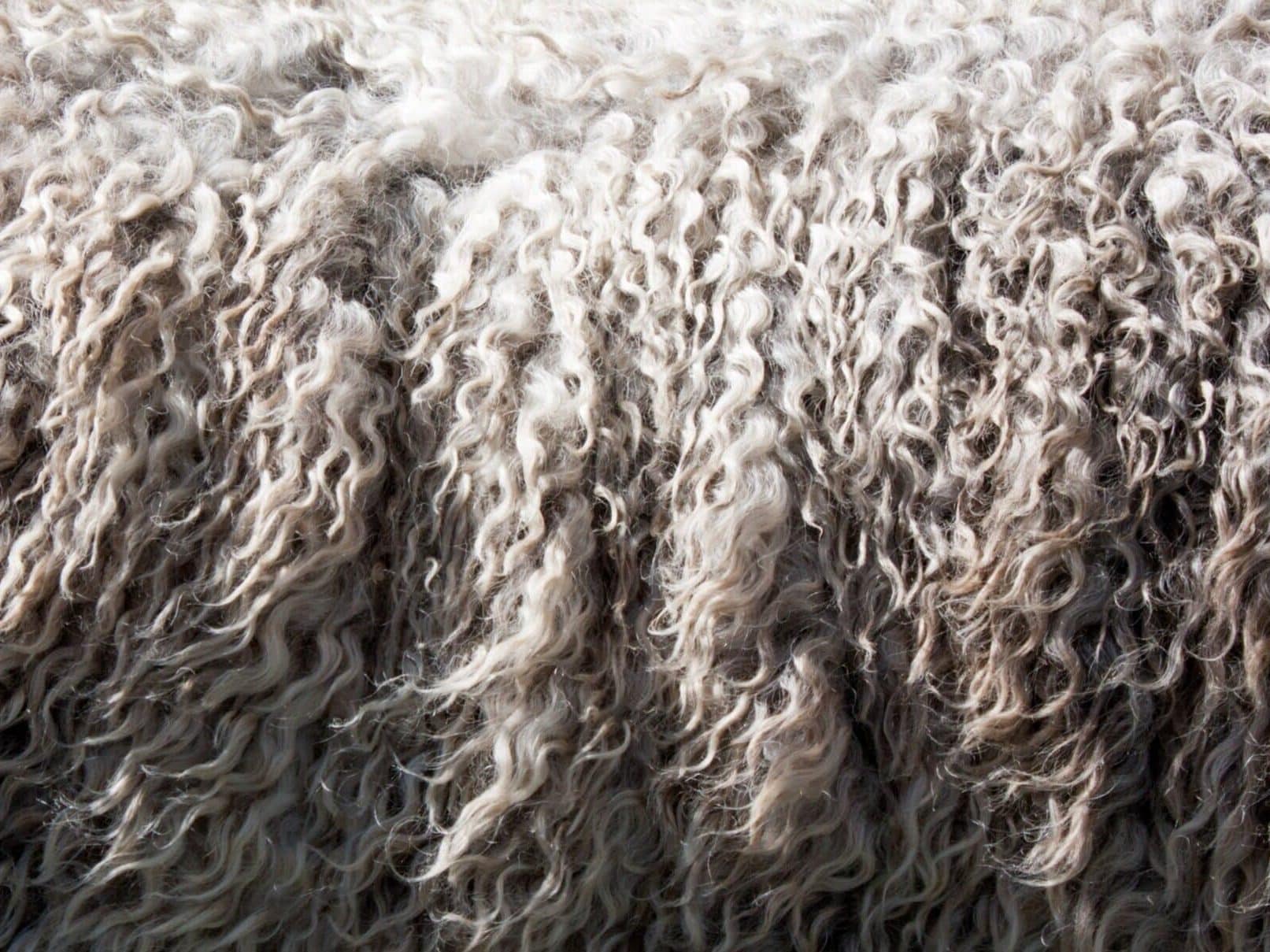
Friday 03 & Saturday 04 November - A Research by design studio with Team Thursday
City Grids: Research by Design
For this research by design workshop we joined forces with Team Thursday - a graphic design studio from Rotterdam, that was founded by Loes van Esch and Simone Trum. In these two-day workshop paticipants created [the base of] a font out of found forms and shapes in the city. We focused on Rotterdam Central District - the area in which the School is located and which is about to change radically of the coming decade. The workshop resulted in the presentation of a font in a typographical poster containing four letters. Friday 03 & Saturday 04 November 2023
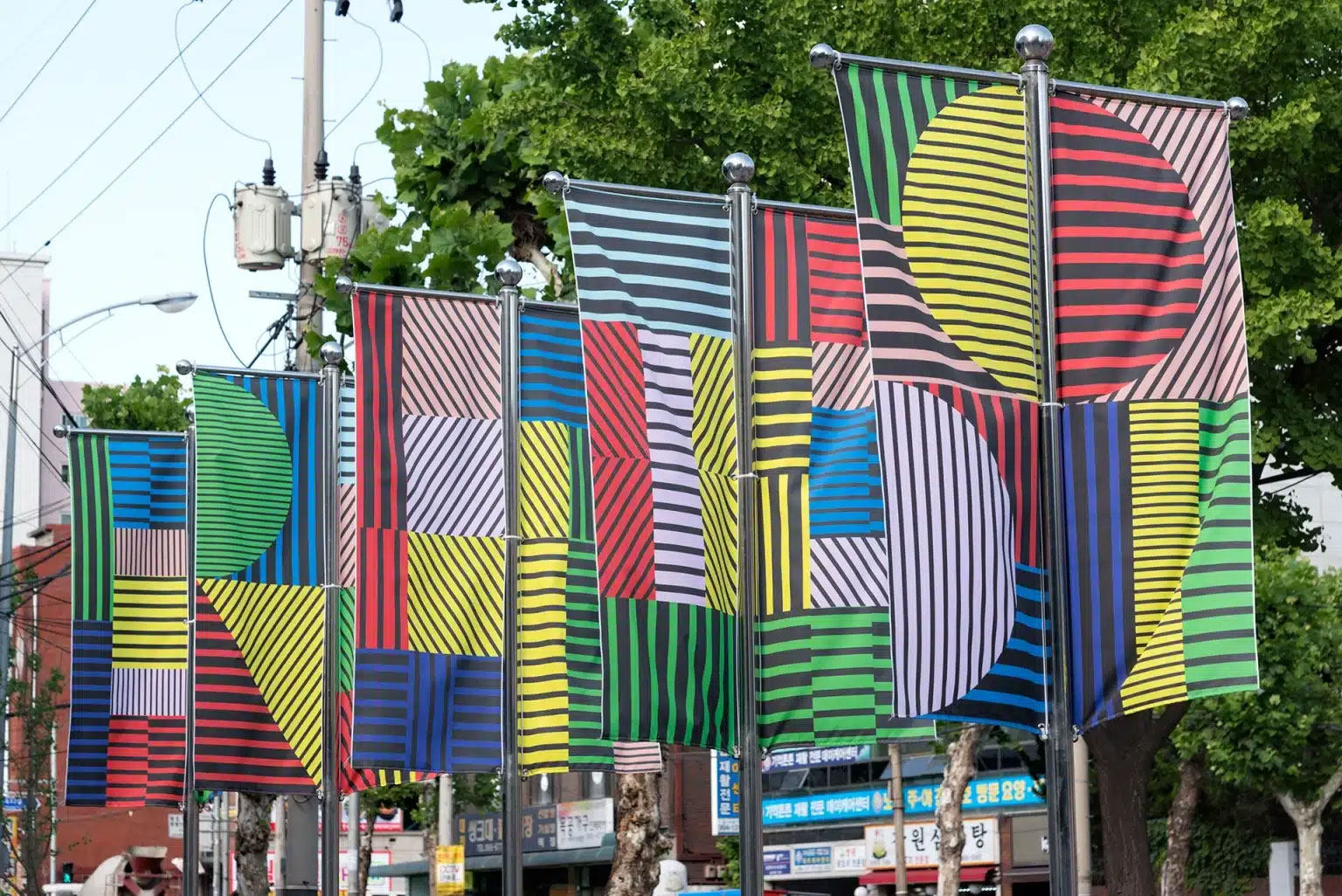
Friday 13 & 20 Oct. and Thursday 02 NOV - A seminar on the rebuilding of destroyed cities
Fables of the Reconstruction
Rebuilding a destroyed city is not just replacing or rebuilding its infrastructure and architecture. It is about making the choice which and whose city should be rebuilt. It is a choice as much about the Idea of the city as about its form. A reconstructed city is not just a brick and mortar replacement of everything that was damaged, but also a story of the history and the future of the city. A heavily idealized and edited story, that tells of power structures and ideology. In the reconstruction of cities ruined by war or disaster, questions of identity, ethnicity, history and culture are paramount. From the reconstructed heart of the city of Rotterdam, this seminar will look at a variety of destroyed cities and how they have reinvented themselves or are in the process of doing so. Through lectures, excursions, workshops and conversations the seminar will cover a lot of ground in a short time and provoke an exchange of ideas across borders. Rotterdam will be the fitting background against which this seminar will play out. More info here
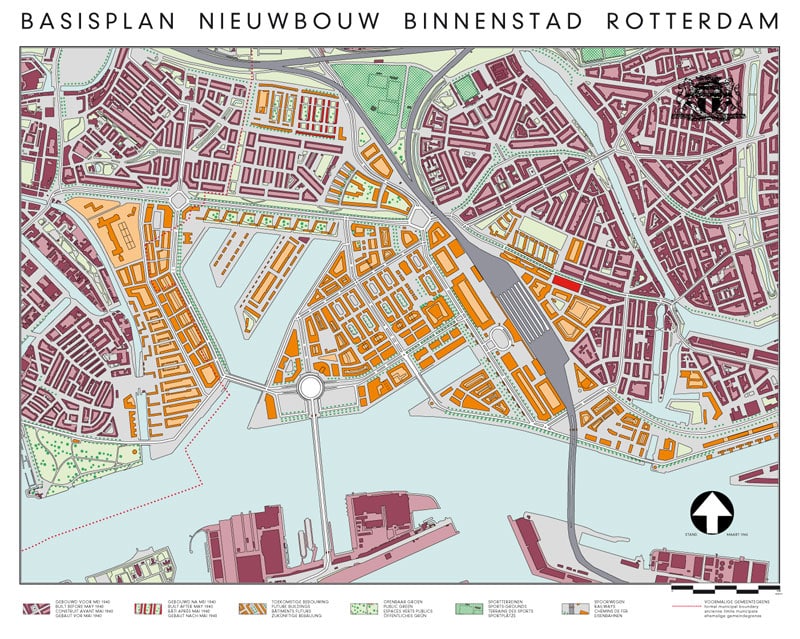
02, 03, 07, 09, 10 + 26 & 28 June - with Architecture Film Festival Rotterdam.
Film & Architecture Studio 2023 - Hot in the City
The Independent School for the City and the Architecture Film Festival Rotterdam (AFFR) have joined forces again to organise another edition of the famous Film and Architecture Studio, supervised by architect, curator, and filmmaker Jord den Hollander. The Film and Architecture Studio has proved itself in the past years as one of the most acclaimed courses on film and architecture in the world. It offers a comprehensive way to use cinematic language as a way to explore the relationship between film, cities and architecture. It is a hands-on studio that focuses on learning and understanding the narrative of filmmaking as a research tool to better understand our urban surroundings. Participants in this course were introduced to the essential elements of filmmaking and learned how to relate these to architecture and the city. The focus of the studio will be not so much on the technical aspects of filmmaking and postproduction, but rather on film as a tool to structure your thoughts and to turn your findings into a gripping narrative.
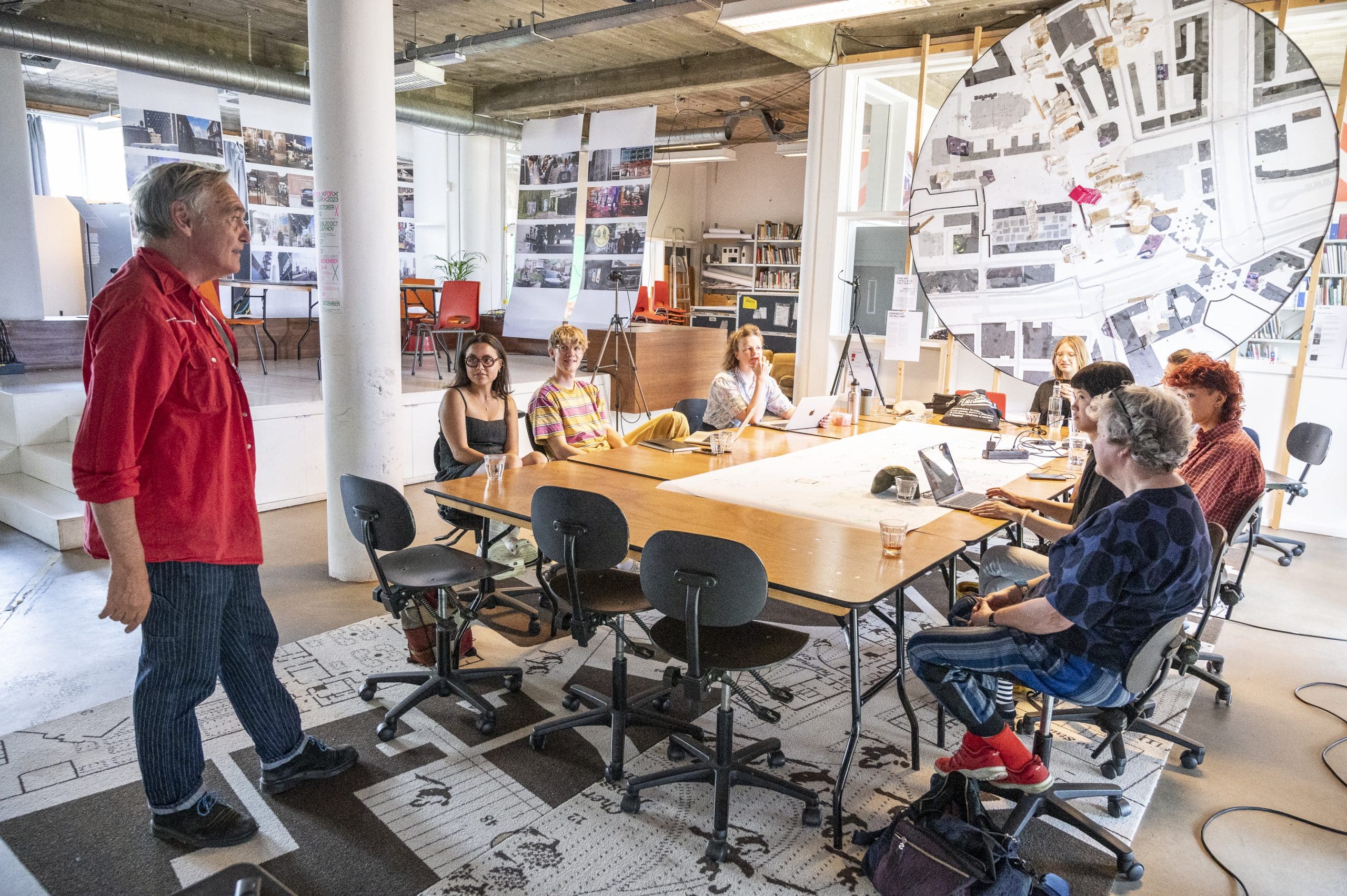
Thu 25 / Fri. 26/ Sat. 27 May 2023 - A speculative crafts studio with Sam Jacob
Crude Hints
In this research and crafts studio with architect and artist Sam Jacob (London, UK) we searched the city now that we are on the eve of an unprecedented period of poverty, inequality and climate crisis for the past half century. We researched and speculated on which artifacts will define this era hundreds of years from now. We collected fragments, shards and traces of our way of life and turn them into whole artifacts, as we imagine the archaeologists of the future would do. It was an exercise in detachment, in which we, as archaeologists, looked back to the past from the future. The result was an imaginary archaeological museum, full of strange artefacts that tell the story of a particularly difficult era. More info here.
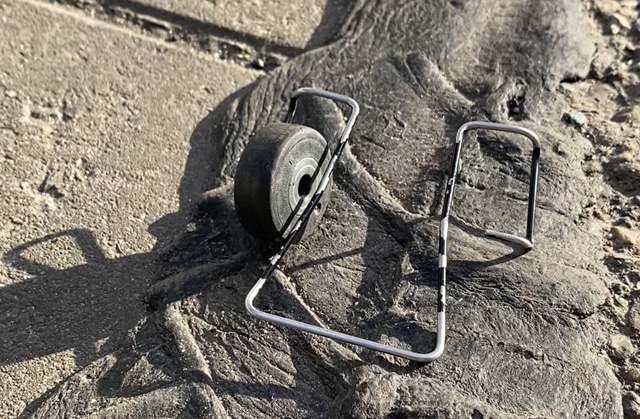
14/15/19/21 & 22 April 2023 - An education studio exploring the impact of 2,5 degree temperature rise on life in the city.
The +2,5° City: Life in an Extreme Climate
Climate scientists have predicted that if we continue at the current pace with climate measures, we will still end up on a planet that is between 2° and 3° hotter at the end of this century. The rising temperature will probably cause extreme weather phenomena, a substantial rising of the sea level, biodiversity loss, food insecurity, large migration streams, social upheaval and political reactions. How will our offspring live in these new unmapped circumstances, how will their cities work, how will their life feel? In this studio we will map out the predicted effects of rising temperatures on the Netherlands, on the City of Rotterdam and on a number of very specific places in the city. After exploring these effects, we will use our collective knowledge and that of our guest speakers and scientific literature, to imagine how we can mitigate the negative effects of global climate change and what is needed to make life livable in a city that suffers its consequences.
The studio is spread over two subsequent Fridays and Saturdays, filled with lectures, excursions, and conversations, with individual research and one collective Wednesday evening. Regular participation fee: 250 euro. More info here
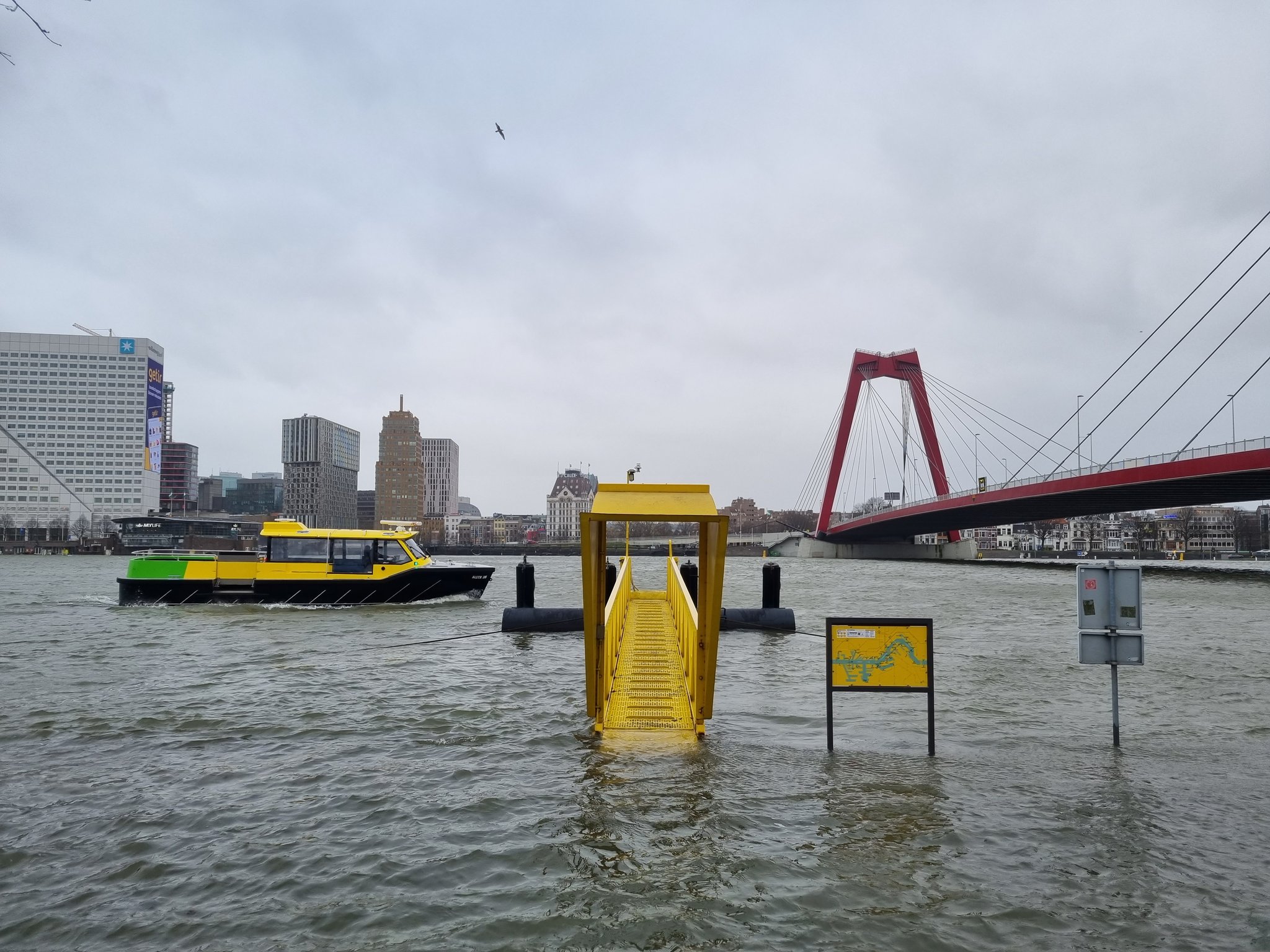
24/25 Feb + 1/3/4 March 2023 - A Studio developing an alternative vision for Feyenoord City based on the concept of Superdiversity.
Living on the Southside
Because of its port and its connections with the rest of the globe, Rotterdam has attracted people from all over the world for many decades. This has led to an urban population that anthropologist Steven Vertovec has started to call ‘Superdiversity.’ Superdiverse cities like Rotterdam bring with them a next stage in the integration process, where ethnicity is no longer the most important let alone the sole factor with which people define themselves. Instead of the old dividing lines of ethnicity or language, superdiversity seems to create new connections. In other words: the simple pie chart of ethnicity becomes mixed up in a fluid composition of overlapping and mixing colours. In this studio, we imagined an entirely different development for this area. One that is not based on the investments of financial giants, or the megalomaniacal ideas to realize a Manhattan on the Maas. Instead, we will try to imagine a city that is based on the kaleidoscopic area that lies around it. We aimed to imagine a brand-new city center for the South of Rotterdam which is based on the superdiverse conditions of its population. A development that is not based on the middle class image the city council wants to project but on the real identity of the city. The studio was spread over two subsequent Fridays and Saturdays, filled with lectures, excursions, and conversations, with individual research and one collective Wednesday evening.
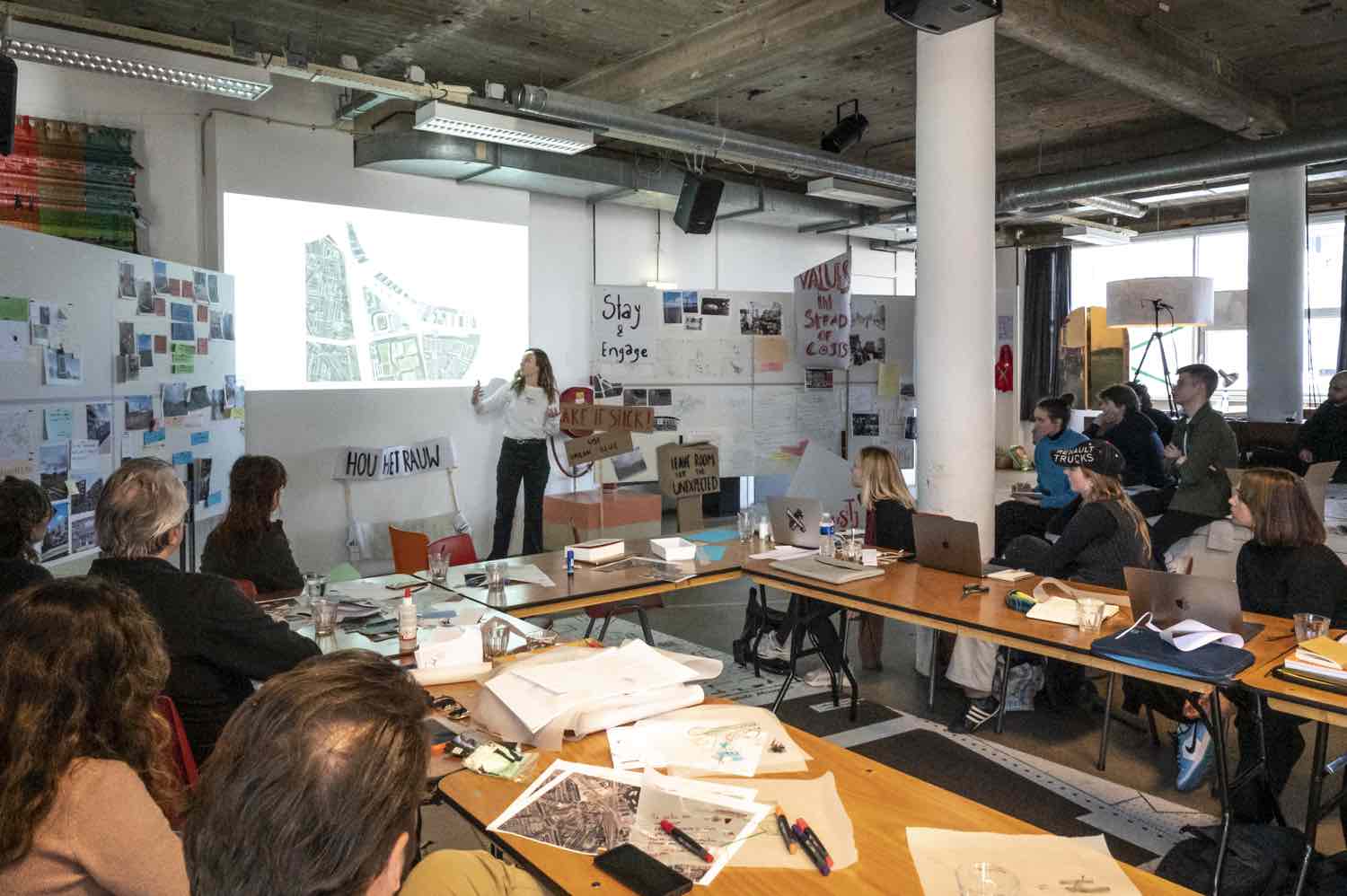
14 - 18 November 2022- A one week studio with BURA urbanism
Post-Growth City
Spatial development and urban planning have throughout the past decades become largely driven by a focus on economic growth and the effects are undeniable in our cities and spatial planning practice: the shortage of housing and the ever-rising house prices, speculation with land and real estate, the impact of urban development on our climate, the depletion of natural resources for building materials, and the subsequent pollution and spatial segregation are just some of the examples. Within this one-week studio with BURA urbanism we aimed to come up with alternative models for an urban development that is not aimed at economic growth, but which considers a better balance between people, animals and nature. A model that focuses on a habitable and just living environment, on the sustainable use of food, water, energy, and materials, and on meaningful work for as many people as possible. What impact could a post-growth economy have on the way that we plan and develop our cities and villages? What is needed to make a radical change? And what models and inspiring case studies already exist as an alternative to the current growth-centered model? Together we looked for answers and ways out. More info here
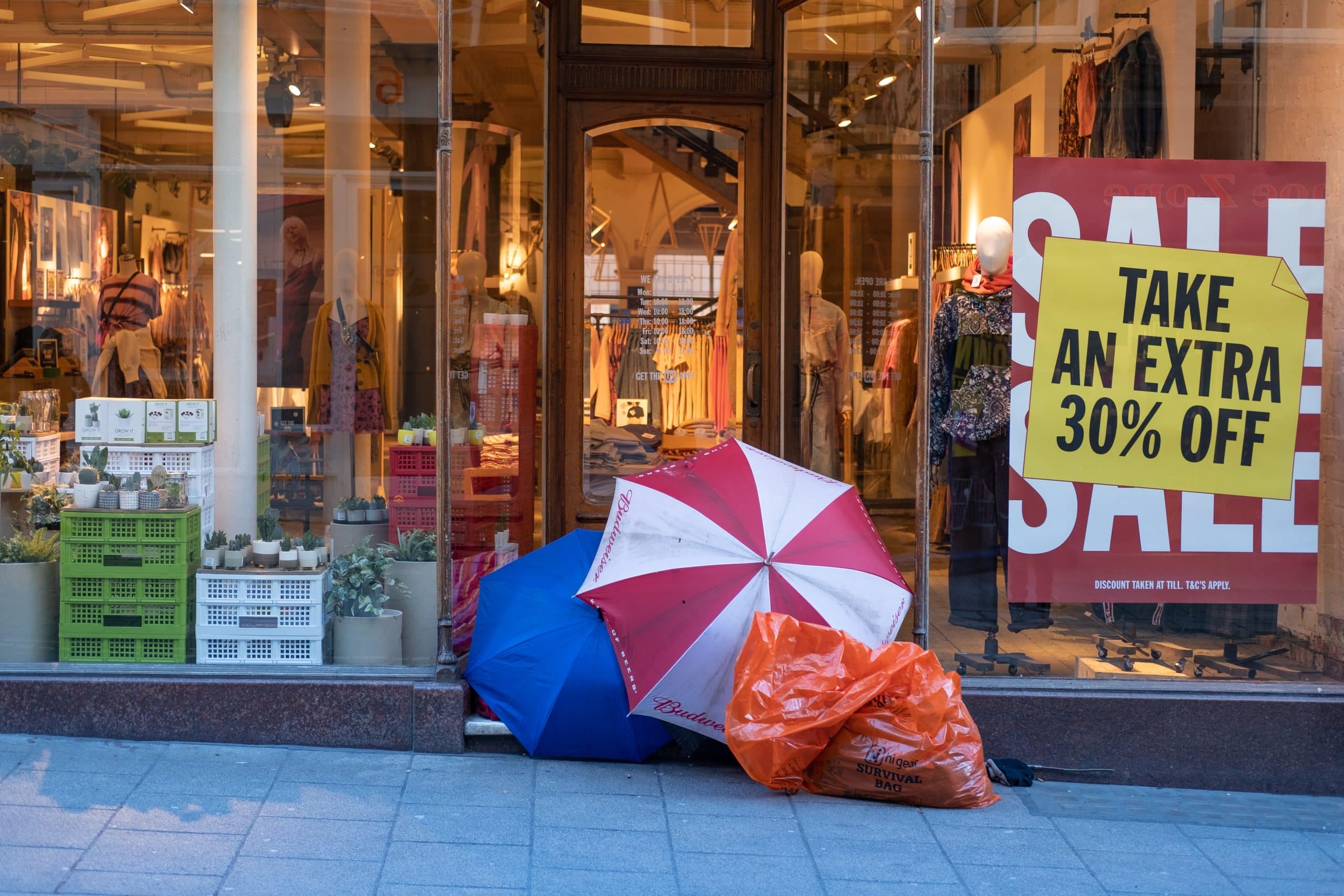
7, 8 & 15 October 2022 - A Research by Photography studio with Charlie Koolhaas
The Rotterdam Dream
While being nicknamed ‘Manhattan on the Maas’ mainly because of its shiny skyline, Rotterdam might truly be the most American city in the Netherlands. At least, that’s what artist, photographer, and writer Charlie Koolhaas noticed when moving to Rotterdam some years ago. In this research-by-photography studio, Charlie will take us out into the city to explore where and how this Americanism reveals itself in Rotterdam, what it means and for whom. From car cruising and hip-hop culture to the city’s entrepreneurialism that pervades everyone. Armed with a camera we will together explore the city of Rotterdam, where Cultural dynamics are high and as Charlie puts it: “where life casually reveals the undeniable vitality, successes and failures of Europe's multi-cultural project at a moment in history when it's under siege.” The joint production of photographs of all participants will be edited into an exhibition combining into one visual narrative. More info here
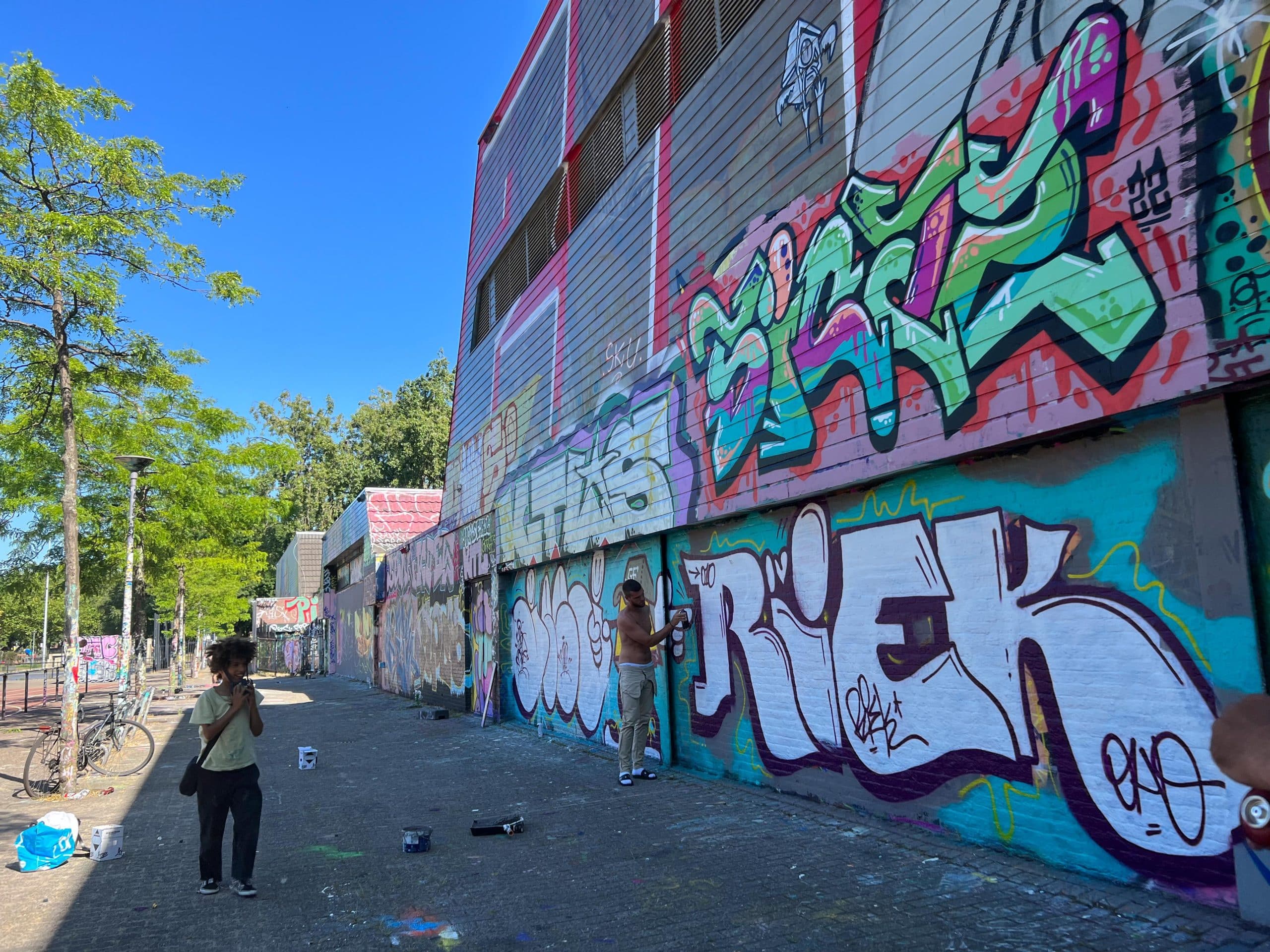
22/23/29/30 September 2022 – On the future proof planning of housing in the Netherlands, with ZUS
Ministry of Make
Just like many other countries in the world, the Netherlands is currently facing multiple crisis; next to a housing shortage of 1 million homes, we have to deal with the consequences of climate change, soil subsidence, a nitrogen surplus and the energy transition. Therefore ZUS, MANN and the International Architecture Biennial of Rotterdam, have taken the initiative to initiate the Ministry of Make! The Ministry of Make! is calling on 100 architects, engineers, and designers to o eventually develop a future proof concept for 10,000 sustainable homes at one of the 100 selected test locations. During this studio we worked as a team to research two of the test sites, using a specially developed Test Kit containing everything necessary to build a model. The model of our urbanisation concept will eventually be united with the other 99 models in an exhibition at the 10th International Architecture Biennale Rotterdam (IABR) that shows the magnitude of the upcoming reconstruction of the Netherlands. More info here
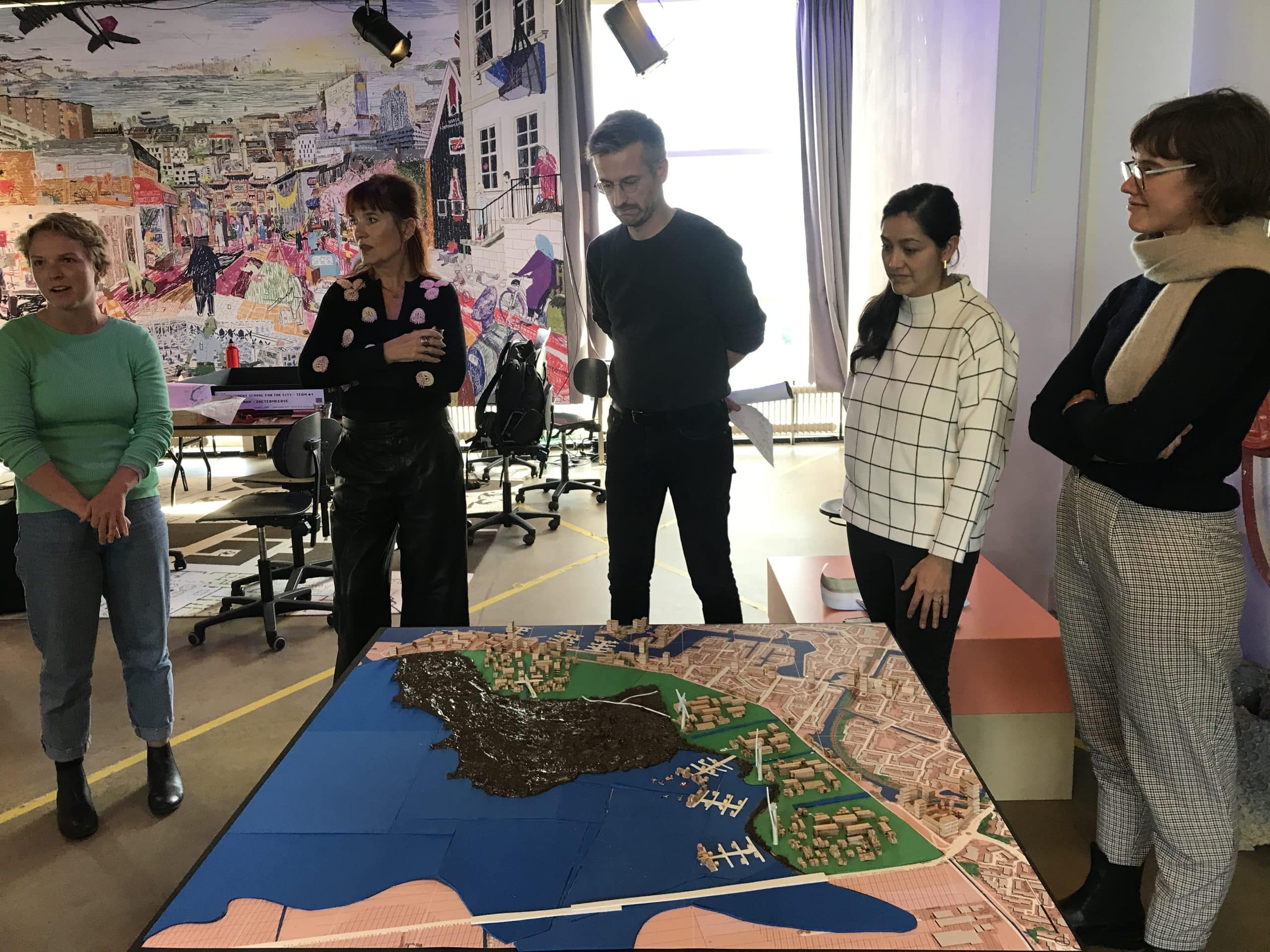
05 Sept - 06 Oct 2022 - With Architecture Film Festival Rotterdam
Film & Architecture Studio 2022
The Independent School for the City and the Architecture Film Festival Rotterdam (AFFR) have joined forces again to organize the next edition of the famous Film and Architecture Studio, supervised by architect, curator, and filmmaker Jord den Hollander. The Film and Architecture Studio has proved itself in the past years as one of the most acclaimed courses on film and architecture in the world. It offered a comprehensive way to use cinematic language as a way to explore the relationship between film, cities and architecture. It is a hands-on studio that focuses on learning and understanding the narrative of filmmaking as a research tool to better understand our urban surroundings. Participants in this course were introduced to the essential elements of filmmaking and learned how to relate these to architecture and the city. The focus of the studio was not so much on the technical aspects of filmmaking and postproduction, but rather on film as a tool to structure your thoughts and to turn your findings into a gripping narrative. More info here
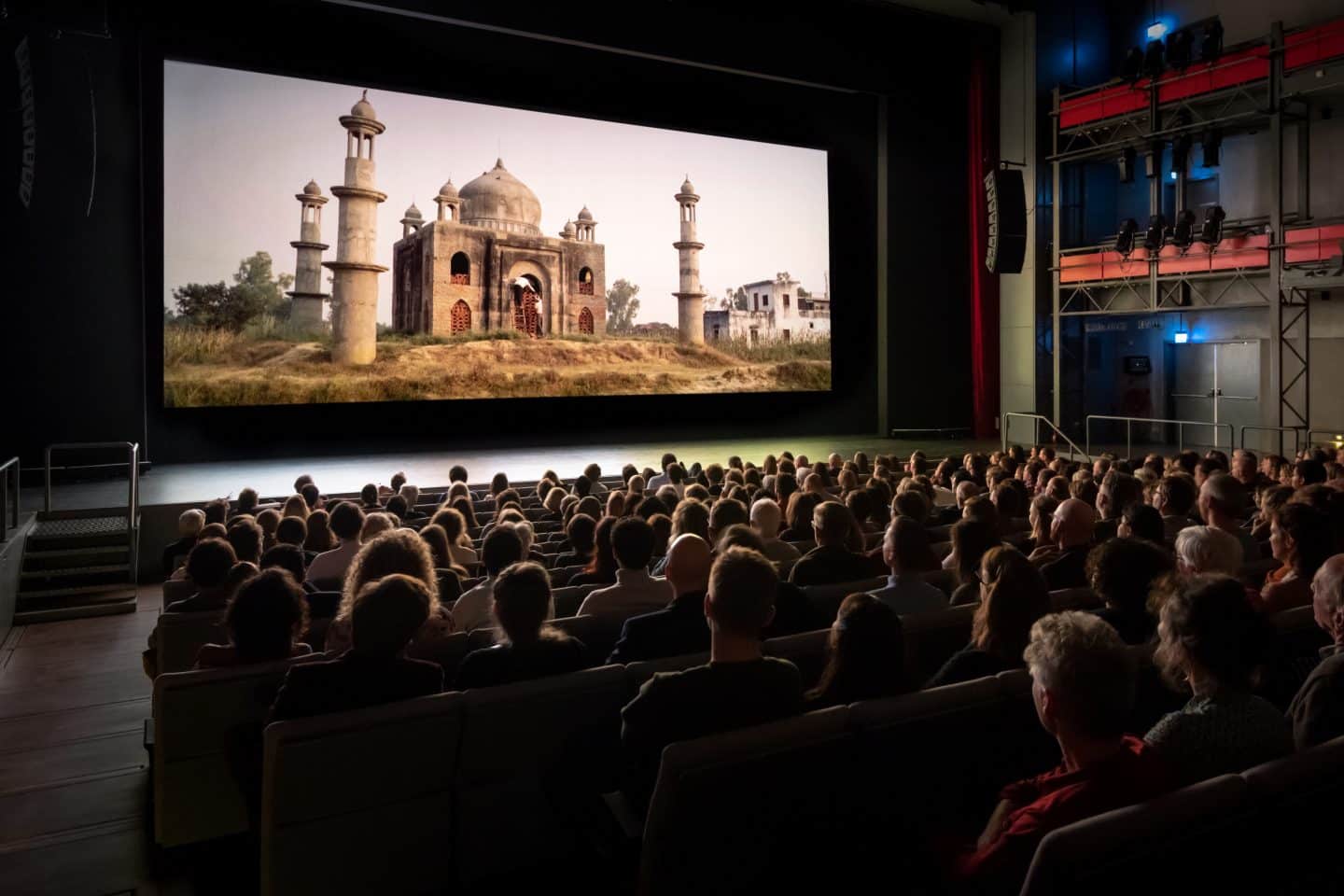
28 MAY 2022 with Wesley Degreef and Jasper van der Linden of BC architects
Earth Discovery Workshop
On Saturday 28 May, we hosted a one-day workshop led by Wesley Degreef and Jasper van der Linden of BC Architects, exploring the possibilities of building with loam and local clay. BC Architects (Brussels Cooperation) is a collective of Brussels architects and artists, which has three organizational structures: BC Architects, an architectural design office in the normal sense; BC Studies, which researches how social design and architecture can contribute to the contemporary and global Zeitgeist in an independent way; and BC Materials, which uses urban mining to gather earth from building sites and transform it into circular building materials. During the workshop we will learn about the ins and outs of using Rotterdam's soil for the development of building materials
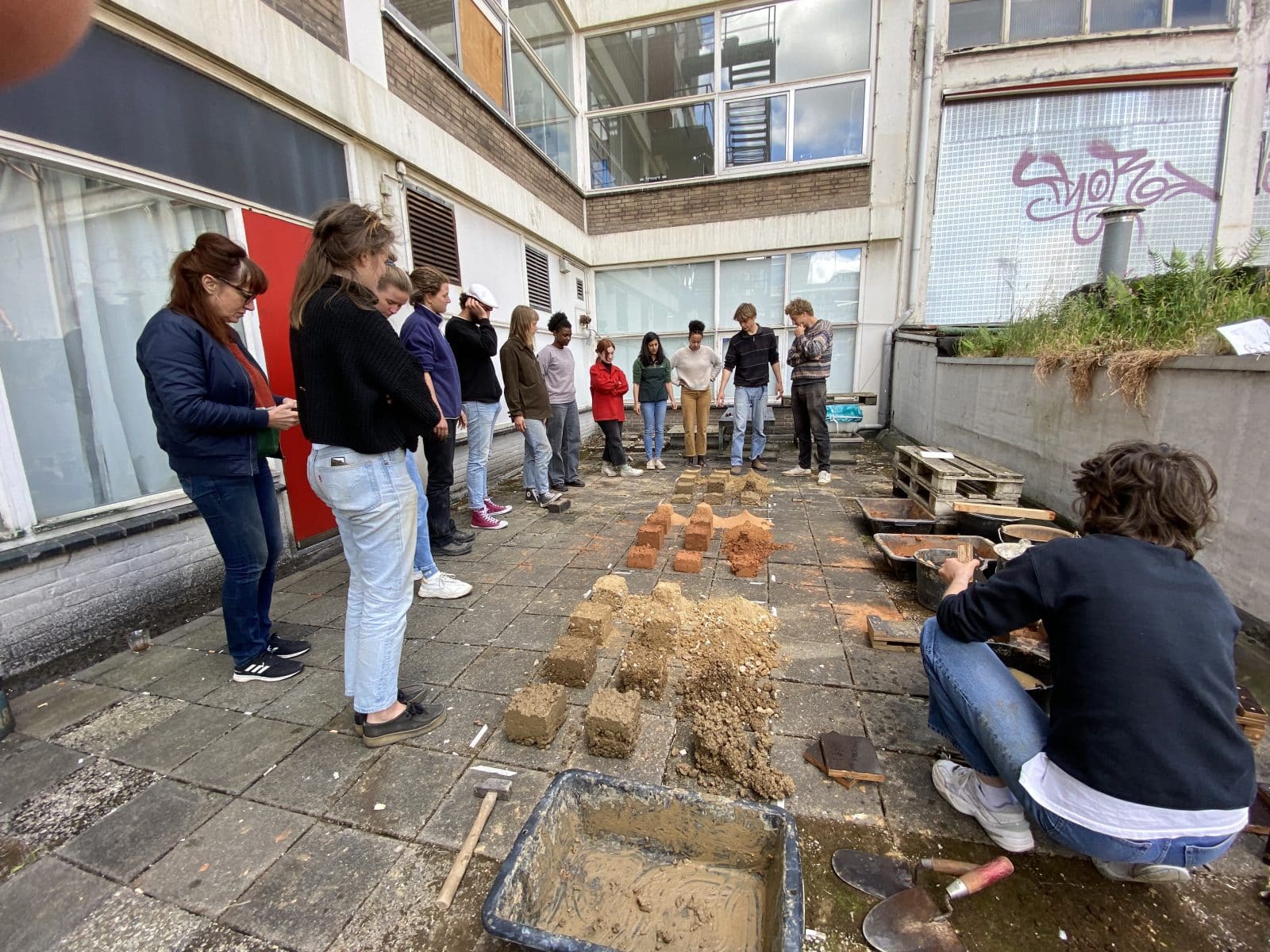
14 - 25 MAR 2022 with Dirk Sijmons and Herman Kossmann
Citizens of the Anthropocene
Just as many cities around the world, Rotterdam has the ambition to become green, sustainable and resilient. All around the city we see projects being developed to transform this car-dominated city, into an attractive and green environment for all its inhabitants, while simultaneously aiming to increase awareness about climate change and sea-level rise. But is it enough? During this thematic block, we’ll dive into the Anthropocene – the geological era marking the dominant human impact on the Earth systems. Through four philosophical viewpoints that one can have of this age of mankind, and while confronting the causes and effects of climate change, biodiversity loss, land-use change et cetera, we will try to bring the effects of our actions close to home, literally and painfully. We’ll use our collective knowledge and imagination to improve, layer and enrich our worldview, to understand our own cities and countries and to develop our own position vis a vis the new normal of the and how we as humans need or want to act.
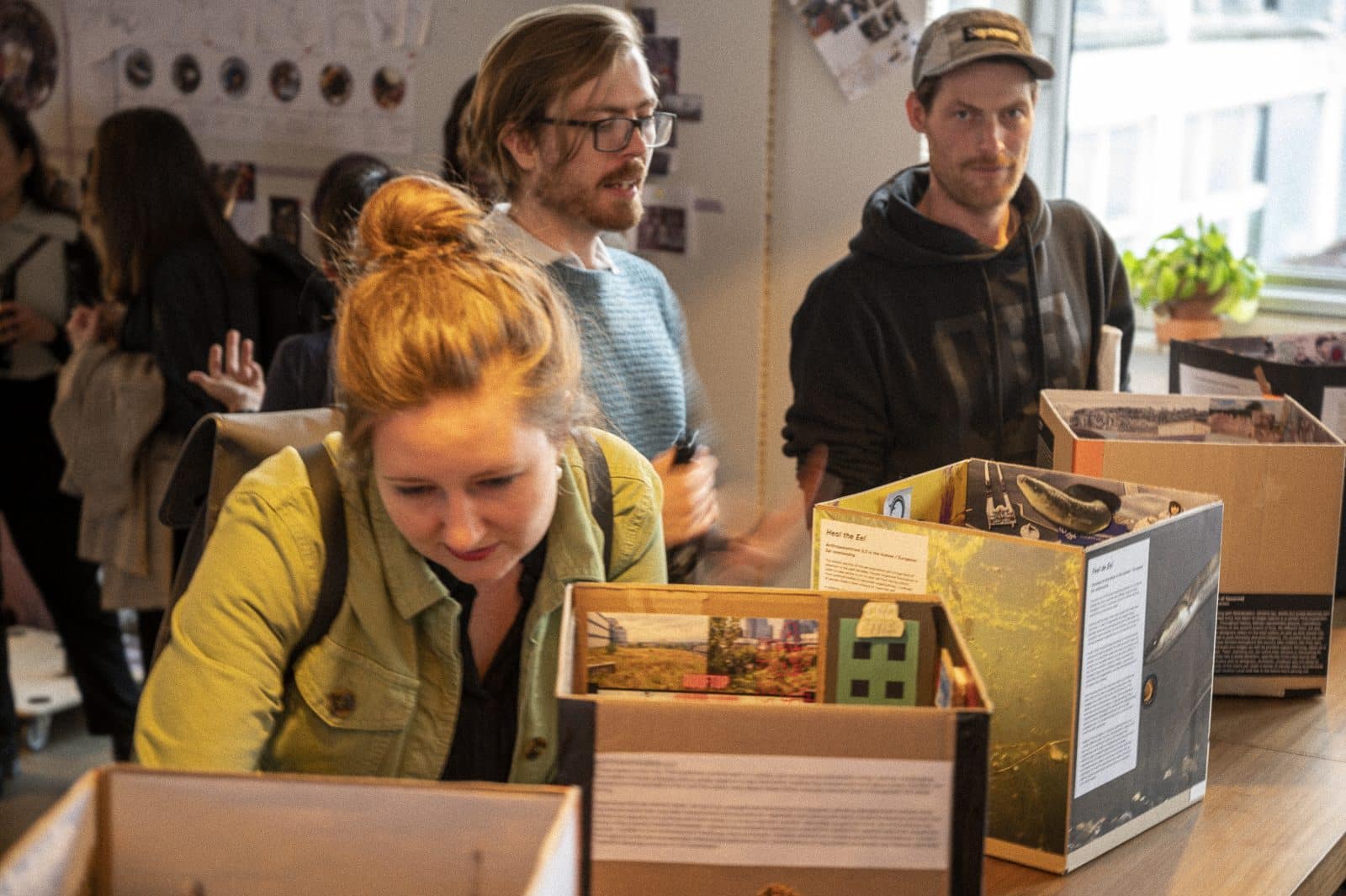
02 - 09 MAR 2022 with Kristian Koreman and Elma van Boxel
CRIME AND CONTROL IN THE PUBLIC REALM
Over the past decades we’ve seen an increase of control and safety measures appearing in our public spaces. Some of them are clearly visible such as concrete barriers and fences, or disguised into flowerpots, sitting objects or other types of street furniture. Others such as surveillance cameras are barely noticed by the average city dweller, or completely invisible in the case of GPS-trackers or other sensors. While the measures might help to keep our cities safe, they also have an impact on the use of public space in terms of democratic performance and representations. Who is watching is watching us, what is done with the data, and until what extend does it influence our behavior? During this studio, we have been mapping and investigating the borders between the public and private domain, focusing on the heart of Rotterdam: the Binnenrotte. This eventually led to an enormous ‘Shady Nolli’ map, on which not only public and private spaces are shown but as well surveillance, safety, barriers, senses, vegetation and any other aspects that have an effect on the public realm.
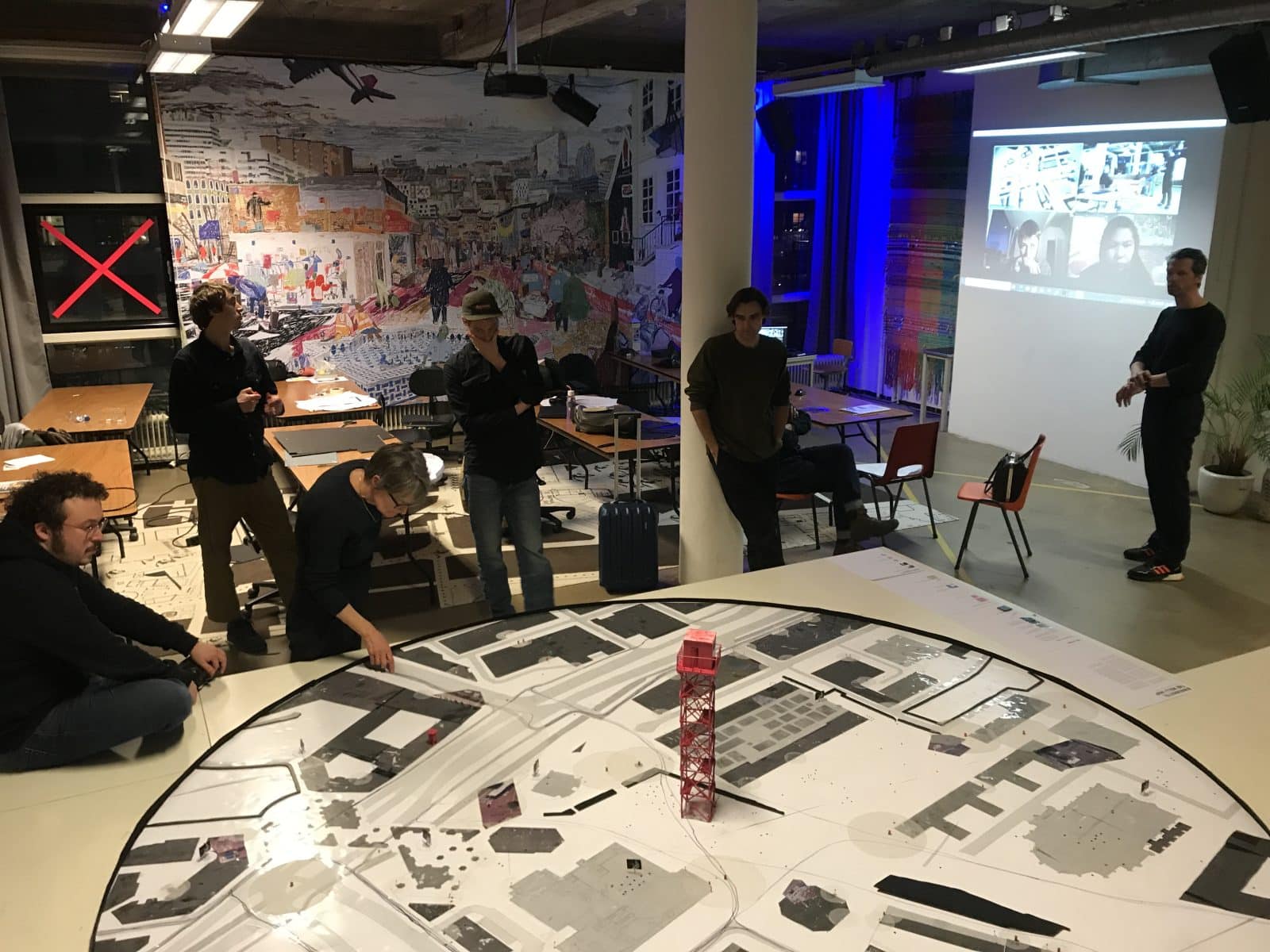
14 - 25 FEB 2022 with Arnold Reijndorp and Neeltje ten Westenend
LIVING IN THE SUPERDIVERSE CITY
Because of the port and its connection with the rest of the globe, Rotterdam has attracted people from all over the world for decades already. Nowadays over 170 different nationalities call the city their home. The population has become so diverse that Rotterdam has become part of a worldwide family of Majority-Minority cities - cities in which more than half of the population has a migration background. And, not just the amount of nationalities has increased: as generations pass, also the diversity within the different migrant groups has become increasingly complex. This increased diversity, or Superdiversity, makes the city interesting, dynamic and attractive, but also creates social tensions. There are huge differences in income, housing situation and development opportunities between the various groups in the city. The spatial spread across the city is also beginning to show signs of segregation. During these two weeks, we aimed to understand this Superdiverse reality through photography in combination with participatory research: observation, walks and talks. We asked the participants to step up to people and engage with them in conversation about what they are doing and how they are living, and to capture hidden, unlocked experiences and phenomena about their life.

A 12-week education programme, dealing with Climate Change, Migration and Control in relation to our urban surroundings, taking place from 31 January - 22 April 2022.
Dirty Old Town 2022
Dirty Old Town is an annual intensive program in contemporary urbanism that takes the modern city as its subject and Rotterdam as its testing ground. Participants in the programme are confronted with the inescapable contradictions and complexities of the contemporary city, while exploring the urban dynamics by bringing together different disciplines from historical research to artistic expression. We take a closer look at the opportunities and challenges that lie ahead of us, by looking explicitly at the character of the city: not just at its trendy restaurants and iconic buildings, but also by its sharp edges.
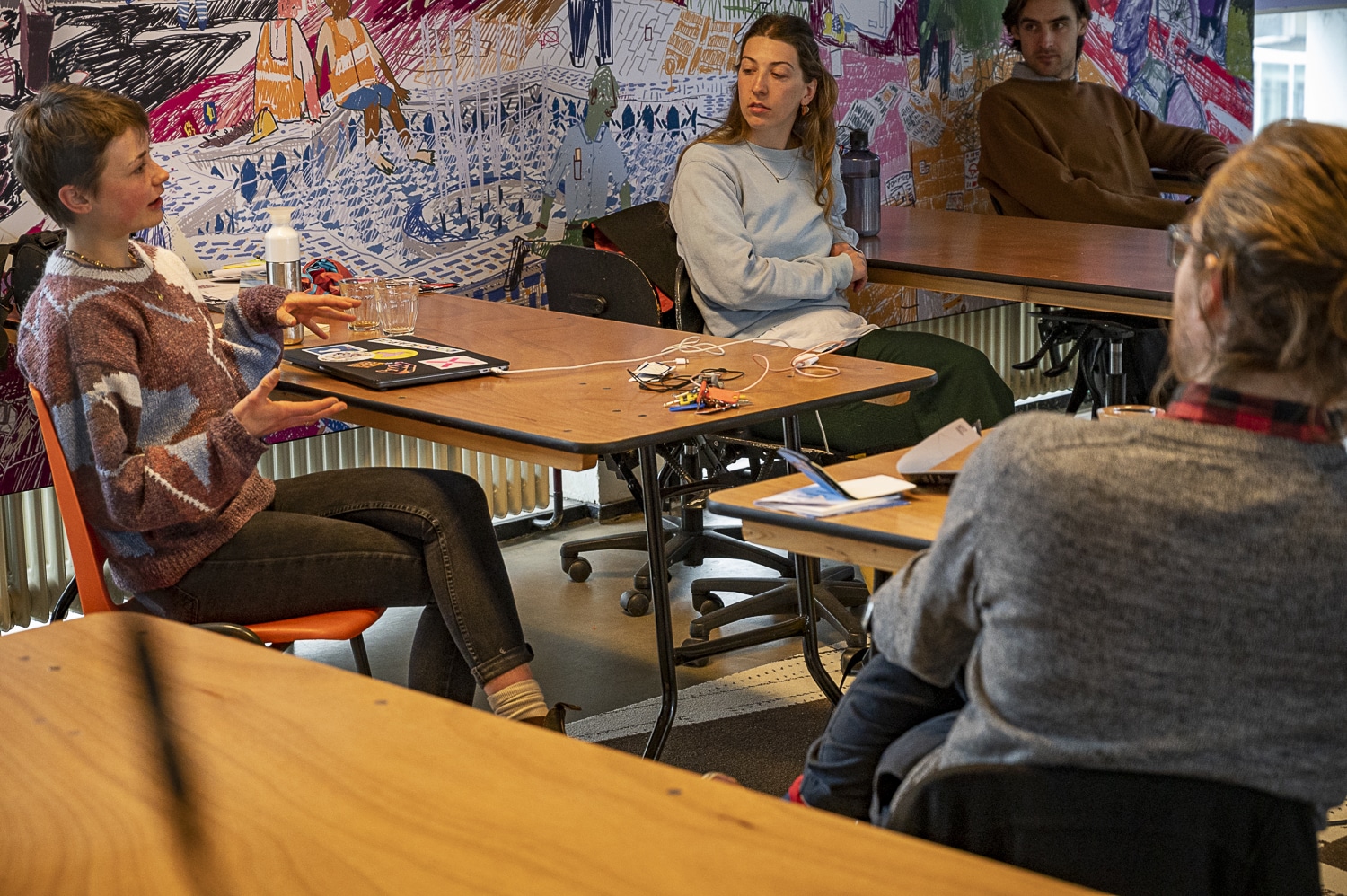
A three-day workshop on the principles of weaving as a metaphor for urban planning, for architecture and urbanism. 10, 11 and 12 December 2021.
Urban Tissue Weaving
This course offered the participants an exploration into the multiple meanings of weaving on a traditional Finnish weaving loom. It was a communal journey for which the Independent School for the City had teamed up with visual artists Bart Gorter and Ernst van der Hoeven, to understand the principles of weaving and to discover it as a metaphor for urban planning, for architecture and storytelling, for the computer, for the landscape and many more things. The course resulted in one large rug, collectively woven by the participants.

A one-week studio investigating the different aspects of migration in Rotterdam's Superdiverse Neighbourhood Afrikaanderwijk, with Crimson Historians & Urbanists, that took place from 15 - 19 November 2021.
A City of Comings and Goings
City of Comings and Goings was a one-week studio exploring the city of Rotterdam in terms of migration and mobility. The studio aimed to go beyond the usual categories of ‘migrants’ vs. ‘natives’ and looked at migration as a shared identity of nearly all citizens: from those who just arrived, to others who have been there for generations, from those migrating from the Dutch countryside to the city, to those that have travelled the oceans from other continents. Focusing on the Afrikaanderwijk – a working-class neighbourhood on the southern bank of the city – the participants conducted a combination of quantitative, data driven research and qualitative research through interviews and news articles. By doing so they not just look at the current situation, but also got a better understanding of what happened over the past 15 years in which numerous plans and a plethora of social, physical and art projects were executed, which resulted in the Afrikaanderwijk becoming the “frontline of gentrification”. More info here
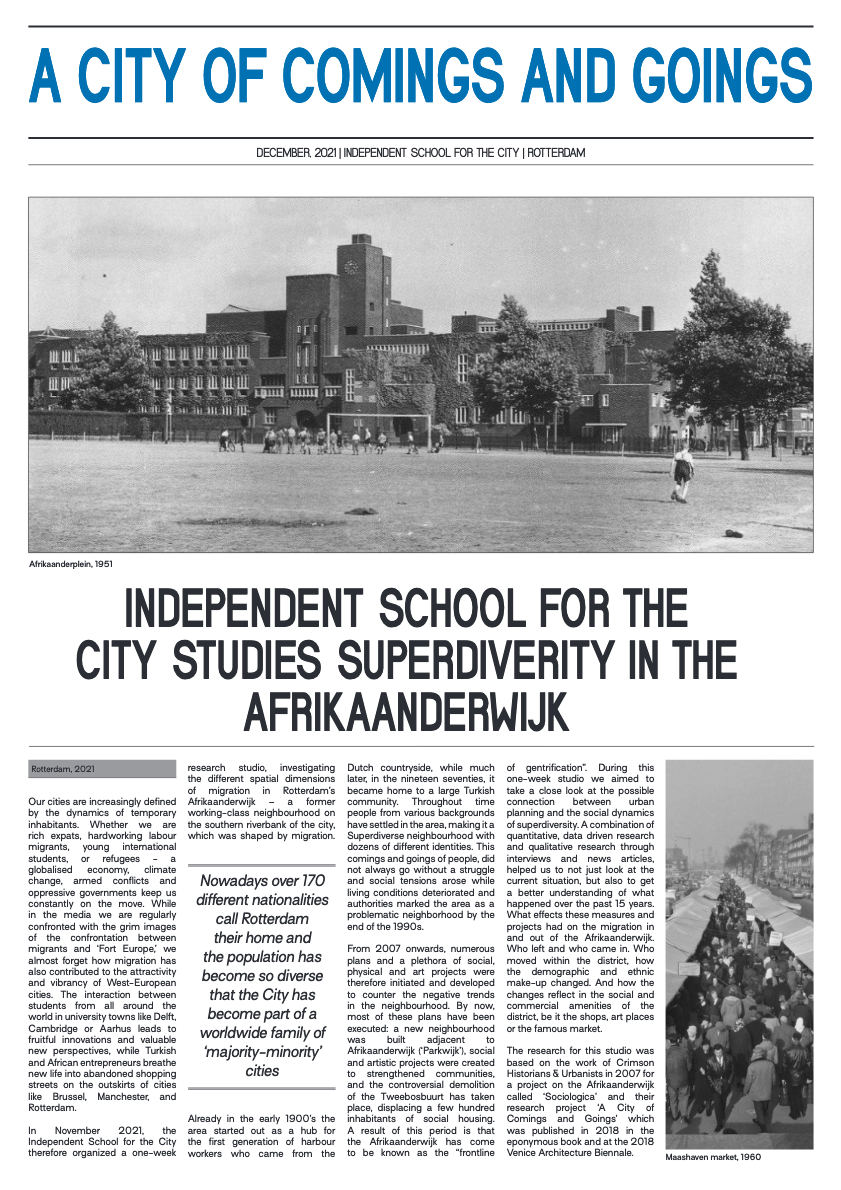
A ONE-WEEK STUDIO EXPLORING STRATEGIES FOR RADICAL GREENING OUR CITIES WITH PETER VEENSTRA OF LOLA LANDSCAPE ARCHITECTS, THAT TOOK PLACE FROM 18 - 22 OCTOBER 2021 IN ROTTERDAM.
Into the Woods
Planting trees has become a popular project for local and national governments all around the world. It’s contributing to combatting climate change, and everyone loves the forest. But not all forests are the same. There are happy forests and sad forests. Productive forests and harmful forests. So, the question is: how can we make a valuable forest? How can we use this movement to create better living environments for everyone? In this workshop we will focus on afforestation within the city limits of Rotterdam. Can we turn Rotterdam into an inhabitable forest? What would it mean for the city? And what are the limitations? In line with today’s spirit, the workshop will lead to real action: planting trees in Rotterdam. More info here
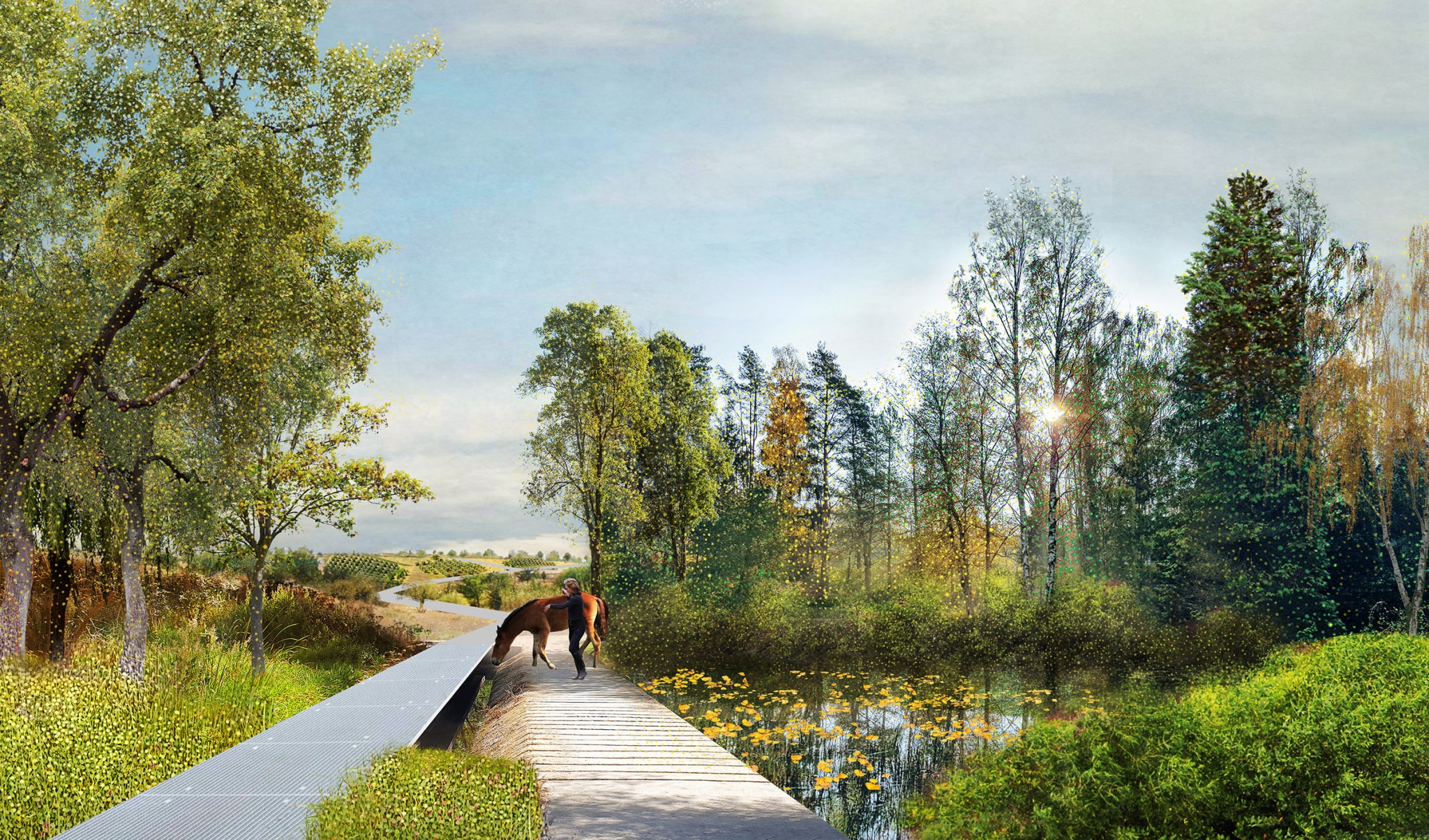
07 - 28 SEPT 2021 With Architecture Film Festival Rotterdam
FILM & ARCHITECTURE STUDIO 2021
The Independent School for the City and the Architecture Film Festival Rotterdam (AFFR) joined forces again in September 2021 to organize another edition of the online film and architecture studio, supervised by architect, curator and filmmaker Jord den Hollander. Spread over various evening sessions, the online Film and Architecture Studio offered a comprehensive way to use cinematic language in architecture and urban design. It was a hands-on studio that focused on learning and understanding the narrative of filmmaking as a way to explore the built environment. Participants in this course were introduced to the essential elements of filmmaking and learned how to relate these to architecture and the city. The focus of the studio was not so much on the technical aspects of filmmaking and postproduction, but rather on film as a way to structure their thoughts and to turn the findings into a gripping story. Throughout the period of a month, the participants conducted research in their immediate surroundings focusing on the public squares while discussing their progress and ideas through weekly online meetings. Internationally renowned DOP Thomas Kist and the Italian antropologist and filmmaker Elia Romanelli, talked with them about heir work, and eventually we got together in Rotterdam for the festive screening of the short movies and to attend the opening of the Architecture Film Festival Rotterdam.
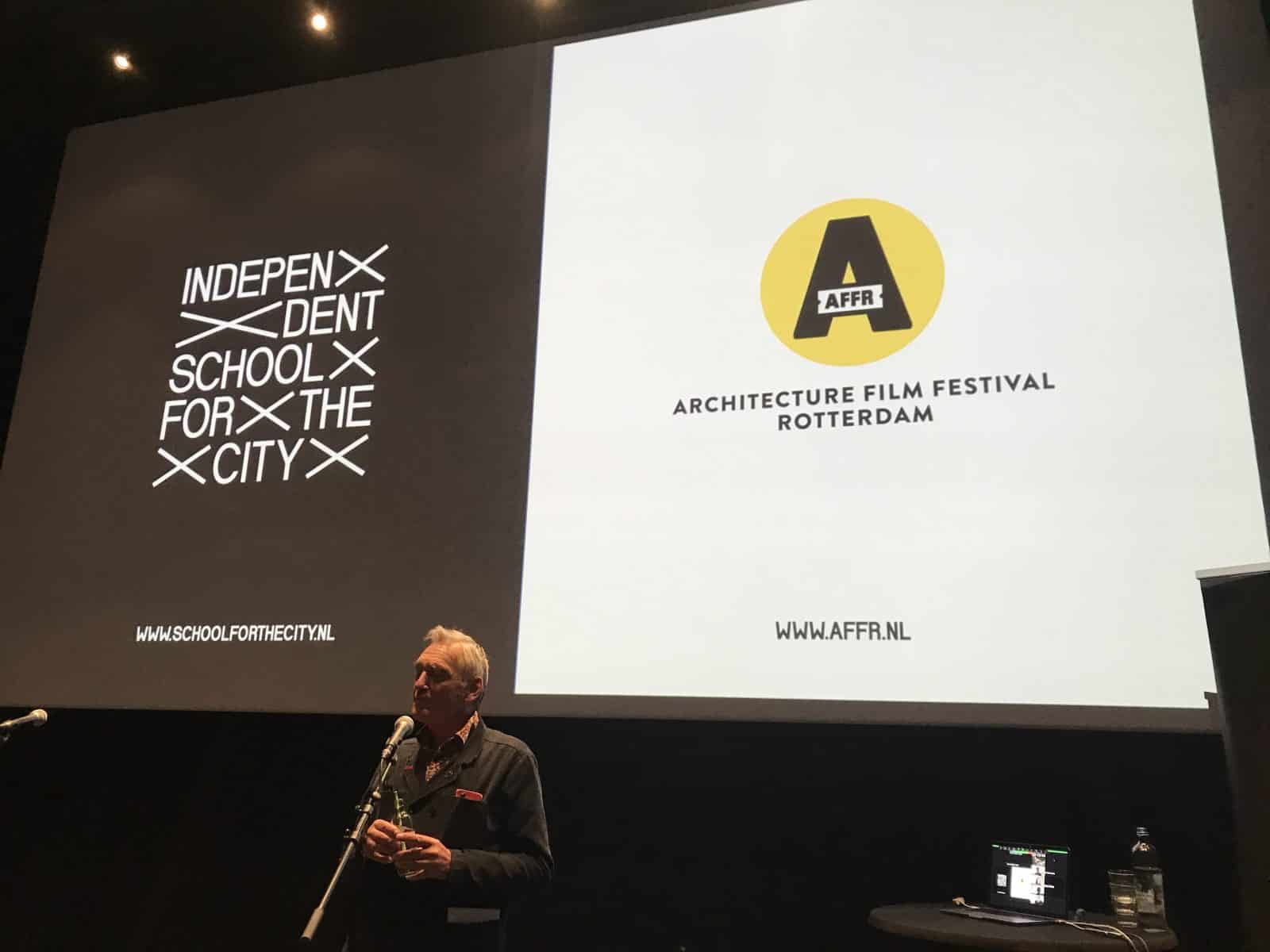
A two-week summer school exploring new strategies for collective affordable housing with architect Alfredo Brillembourg of Urban-Think Tank Design Partners, experience designer Tessa Steenkamp and Crimson Historians & Urbanists, that took place from 19 - 30 July 2021 in Rotterdam.
Summer School Let's Be R€al!
During the summer school LET’S BE R€AL! we will explored alternatives for creating actionable living spaces for affordable rents. We did so by means of a collective effort, and with a special focus on existing, vacant property. The Rotterdam collective City in the making (Stad in de Maak) functioned as our external client for the studio. Together we supported them in finding a new location for housing, new models of ownership and new methods of collective city making – using the requirements for their initiative as a real-life case study.
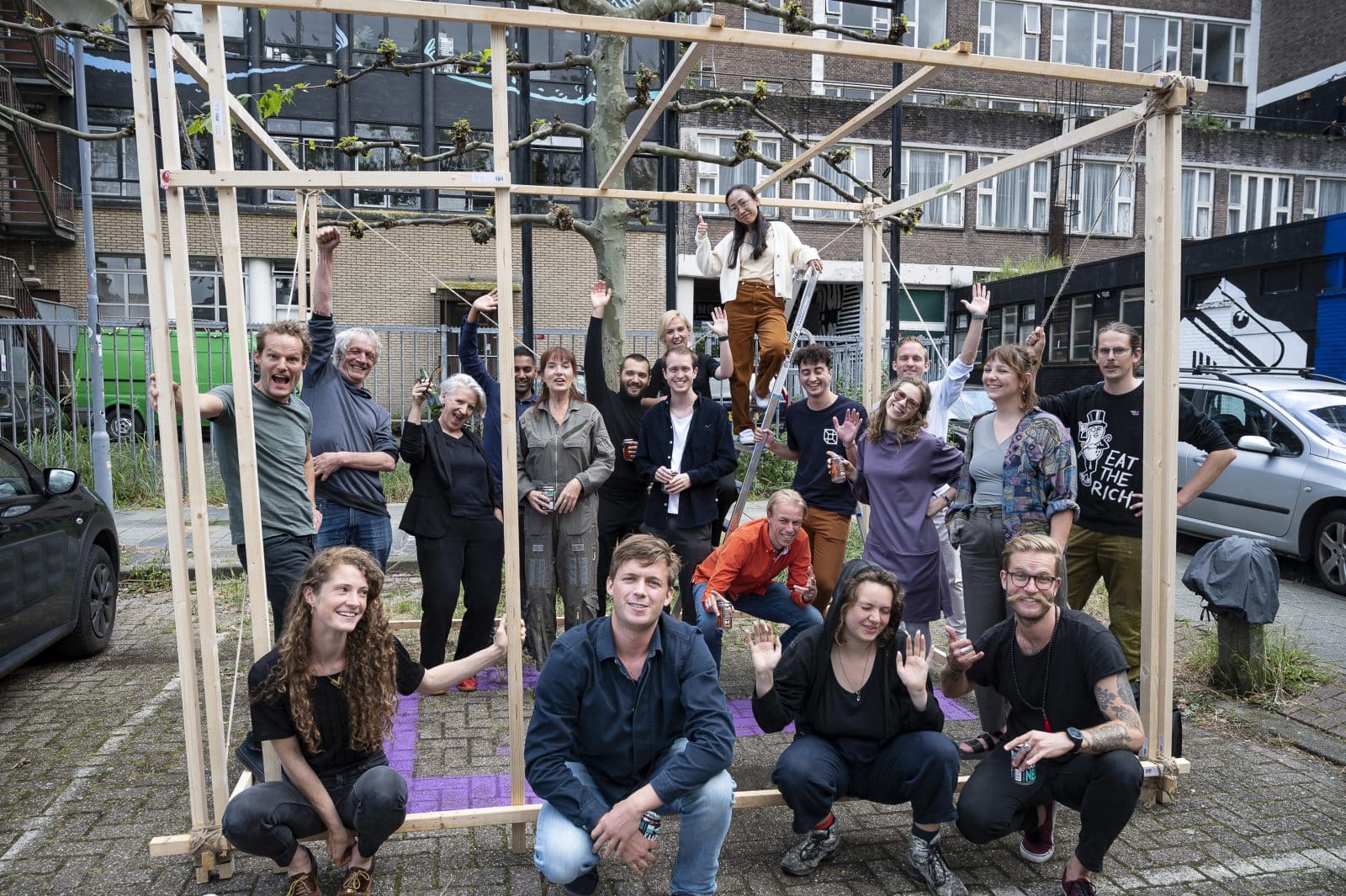
The Polder of Babel
The Polder of Babel - A Superdiverse City in the Anthropocene, is a ongoing community of learning about the urban development of Rotterdam. By bringing together civil servants, planners and researchers, the community aims to be a place for inspiration, reflection and the development of new ideas that could help Rotterdam and other cities in the Netherlands to move forward with respect to today's urban challenges.

A two-week studio exploring four philosophical viewpoints towards the Anthropocene and what it means for our urban surroundings, taking place from 16 - 27 March 2021
Citizens of the Anthropocene
In this two-week studio we will discover the ultimate consequences of our attitude to the Anthropocene and what this means for our urban surroundings. A matrix of four basic attitudes towards the Anthropocene and a confrontation to the causes and effects of climate change, biodiversity loss, land use change et cetera will help us bring the effects of our actions close to home, literally and painfully. From the abstract levels of dealing with the climate in terms of policy, economy or science, we will dive right down to the level of everyday life in the city, in your own neighborhood, in your own street. If you are a denialist, expecting that the current upheavals are part of a geological cycle unaffected by humans, then how will you work, live and travel in the future, relieved of all restrictions and feelings of guilt or responsibility? What will your street look like? If your attitude is one of Deep Ecology and you feel that man should take steps back and realize he’s only a small cog in a living web of a myriad of species then how would you spend your days and your life. But what if you are a techno-optimist, expecting solutions from technology that would allow us to keep on developing, growing and innovating, without endangering our future, how would daily life be redesigned? And what if you would accept that our only way to survive and come to terms with the damage we have already done, is a radical deprogramming after a millennium of a fundamentalist belief in growth? How would we live then?
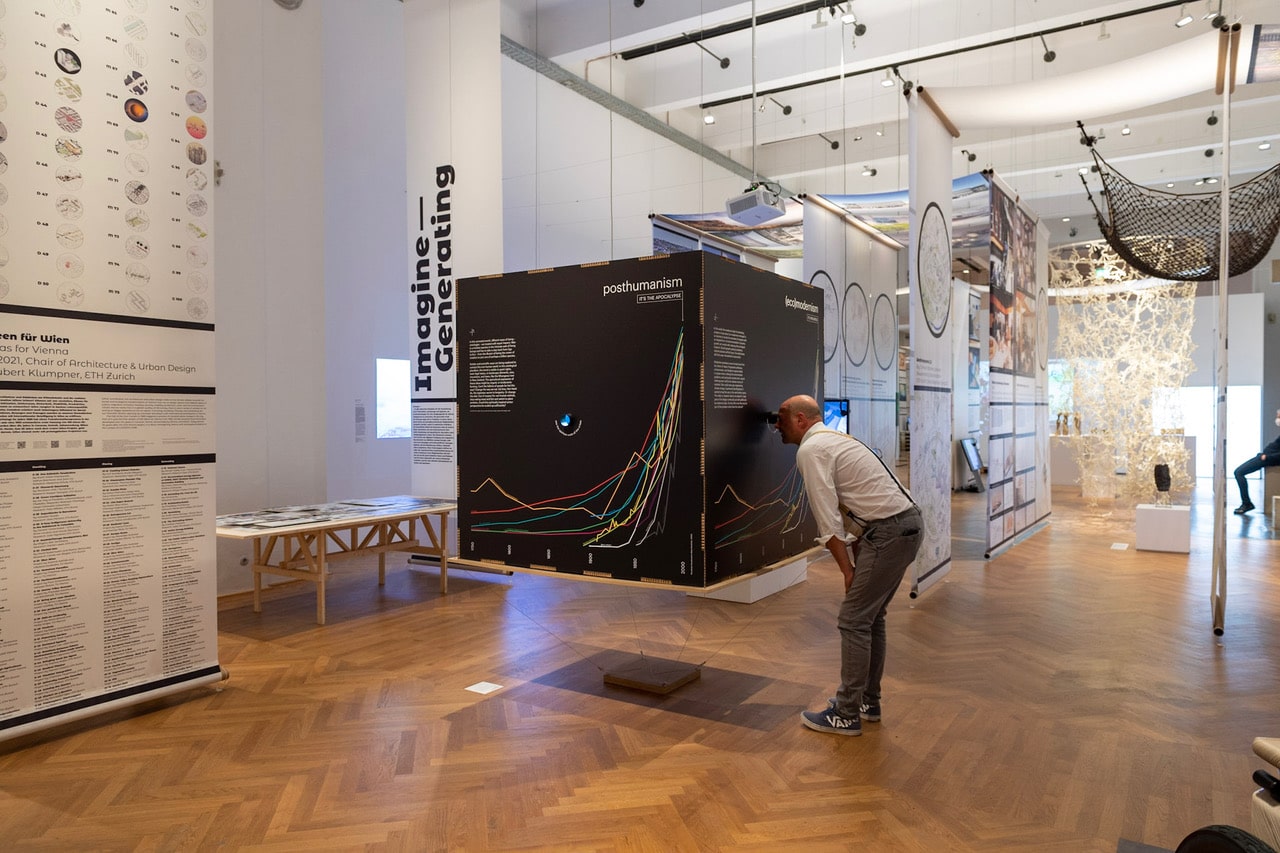
A one-week studio exploring the physical and urban dimension of crime in Rotterdam taking place from 03 - 10 March 2021
Crime as Part of a Global Network
This studio is part of our intensive three-month programme on contemporary urbanism ‘Dirty Old Town’, but can also be taken separately. Regular tickets are available for 250 euro. Student tickets are available for 200 euro. The course is subject to Corona measures. We will determine in January 2021 whether the course can take place. You can register for this studio by sending an email to info@schoolforthecity.nl The payment should be completed by invoice two weeks before the start of the course. For practical reasons, a maximum of 15 participants (including the Dirty Old Town Participants) can take part in this course.
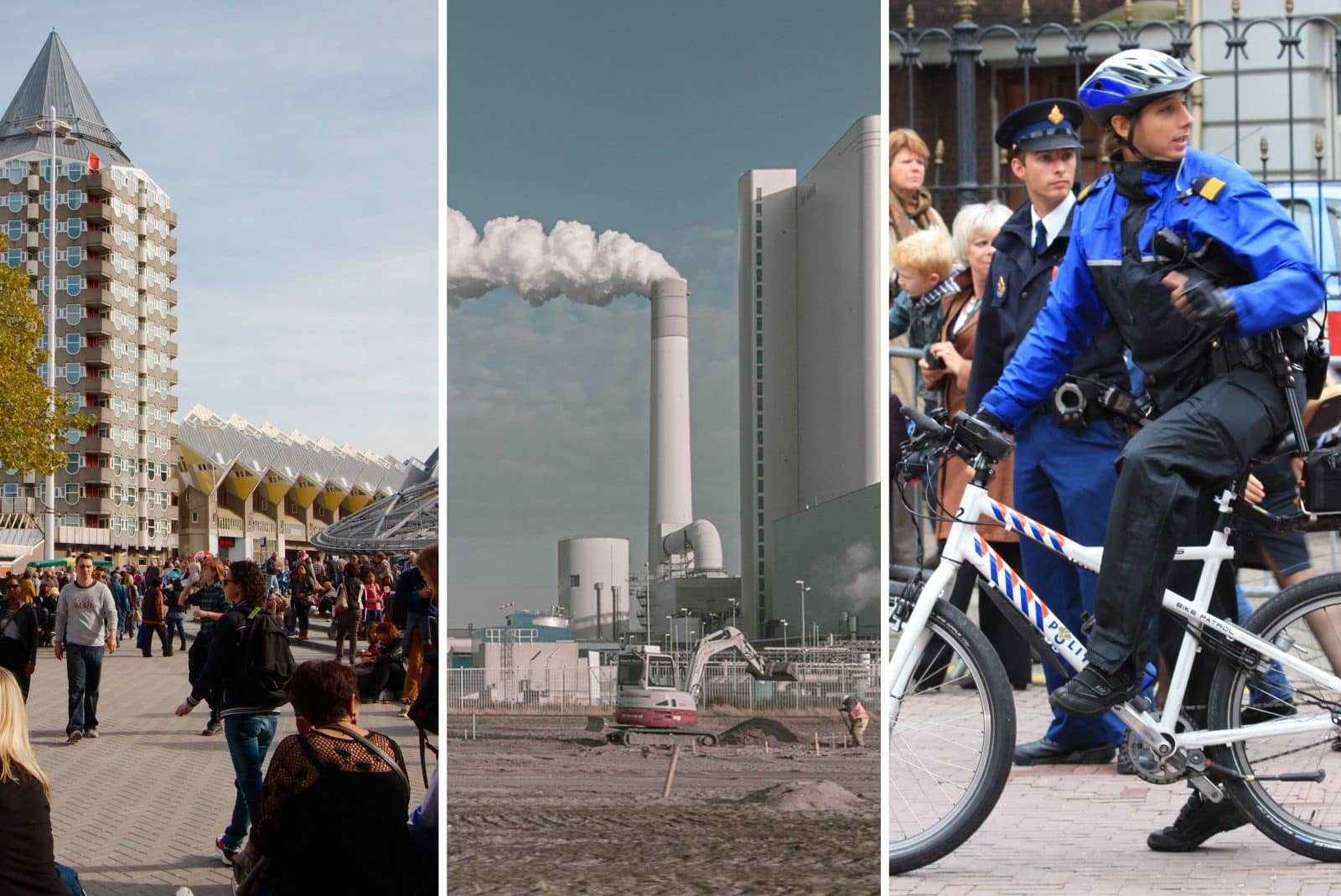
A research by photography studio exploring Superdiversity, taking place between 15 - 25 February 2021
Superdiverse Cities
For this online studio the Independent School for the City has teamed up with visual artist Neeltje ten Westenend to map different perspectives of the street, explore superdiversity and how it is manifest in our daily environments. Basic tools are photography, observation, walks and talks. You will choose a street where you expect to find a great diversity of identities. We then ask you to unravel and unfold this street, to find out which shared spaces, languages, symbols and activities are to be found there. This work will be done by photography in combination with participatory research. We ask you to step up to people and engage them in conversation about what they are doing and how they are living. You can also hand over the camera to these people so they can take pictures of objects, places and people that are meaningful to them, to capture hidden, unlocked experiences and phenomena about how people live. Can we find out together what binds different groups?
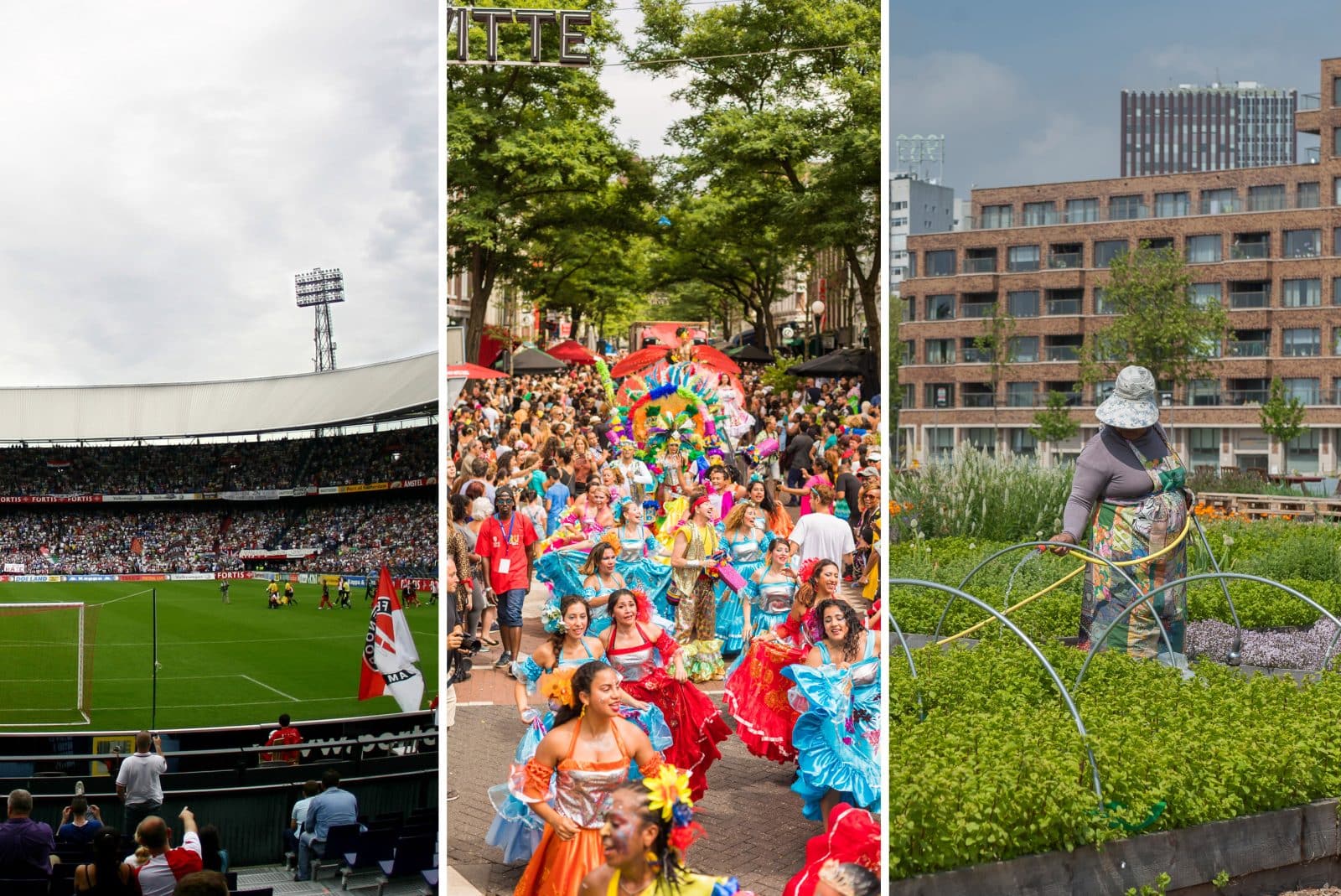
From 01 February until 23 April 2021, we offered our first 12-week programme on contemporary urbanism that took the modern city as its subject and Rotterdam as its testing ground.
Dirty Old Town; Act Now! 2021
From 01 February until 23 April 2021, we offered our first 12-week programme on contemporary urbanism that took the modern city as its subject and Rotterdam as its testing ground. Together with the participants and a diverse team of urban specialists, designers and researchers, we explored the inescapable contradictions and complexities of the city by bringing together different disciplines from historical research to artistic expression trough topics such as climate change, crime and superdiversity. We aimed to look beyond Rotterdam's current popularity and tried to see the city as it really is, and as we can imagine it to become. As a place that can be old, new, dirty and beautiful at the same time. Through lectures, excursions and workshops, we offered the participants the freedom to deepen their knowledge and to develop their own position towards the pressing urban issues of our time.
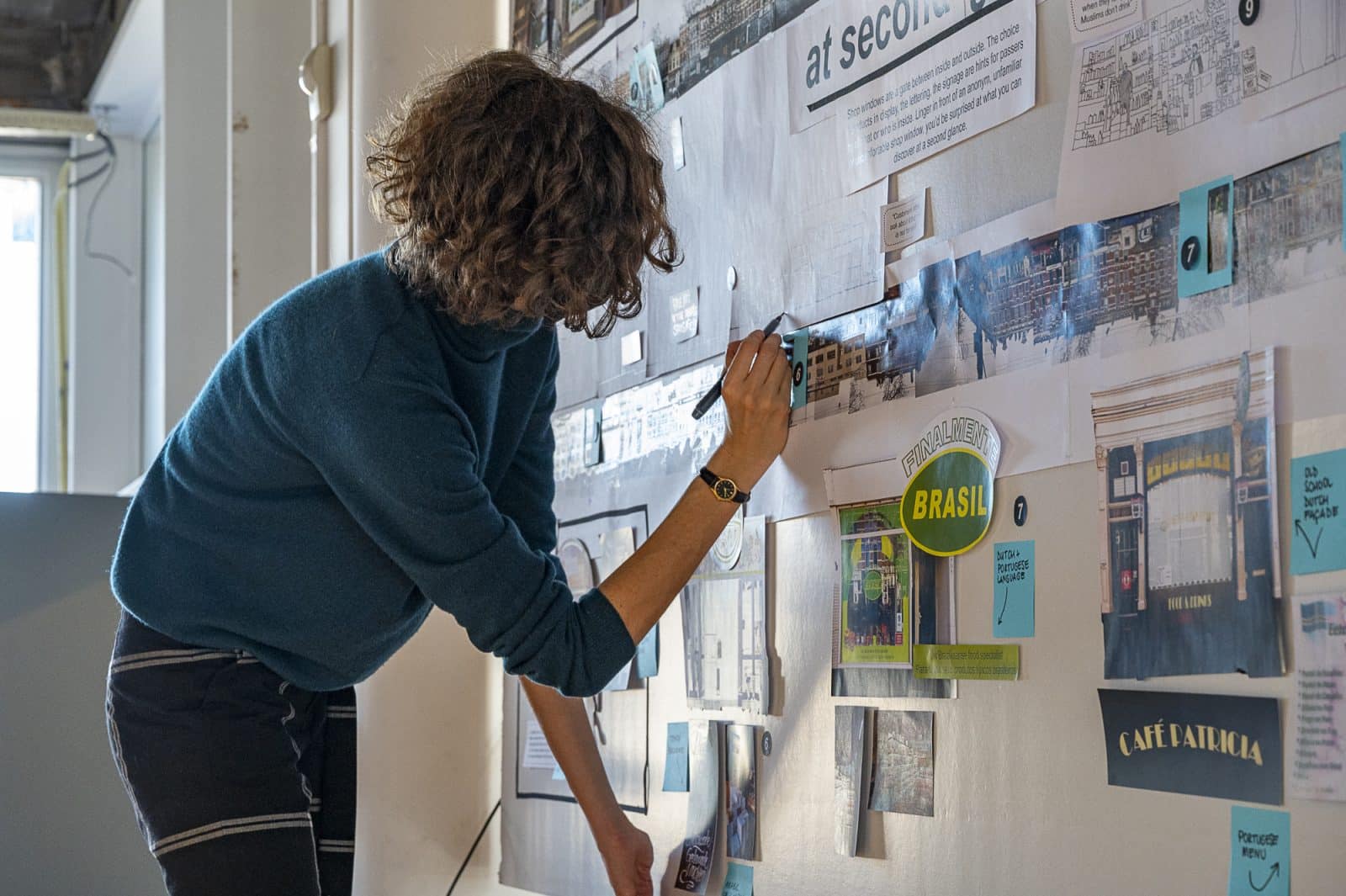
An online crash course on filmmaking in relation to city and architecture, led by Jord den Hollander.
Film & Architecture Studio 2020 - Daily Life in Times of Corona
After a successful first edition, we have joined forces again with the AFFR to organize the Film and Architecture Studio supervised by curator and filmmaker Jord den Hollander. Now taking place online, the Film and Architecture Studio offers a comprehensive way to use cinematic language in architecture and urban design. It was a hands-on studio that focuses on learning and understanding the narrative of filmmaking as a way to explore the built environment. Participants in this course are introduced to the essential elements of filmmaking and will learn how to relate these to architecture and the city. The focus of the studio is not so much on the technical aspects of filmmaking and postproduction, but rather on film as a way to structure thoughts and to turn findings into a gripping story. Participants in this course were asked to explore the physical surroundings in times of Corona. See the results here
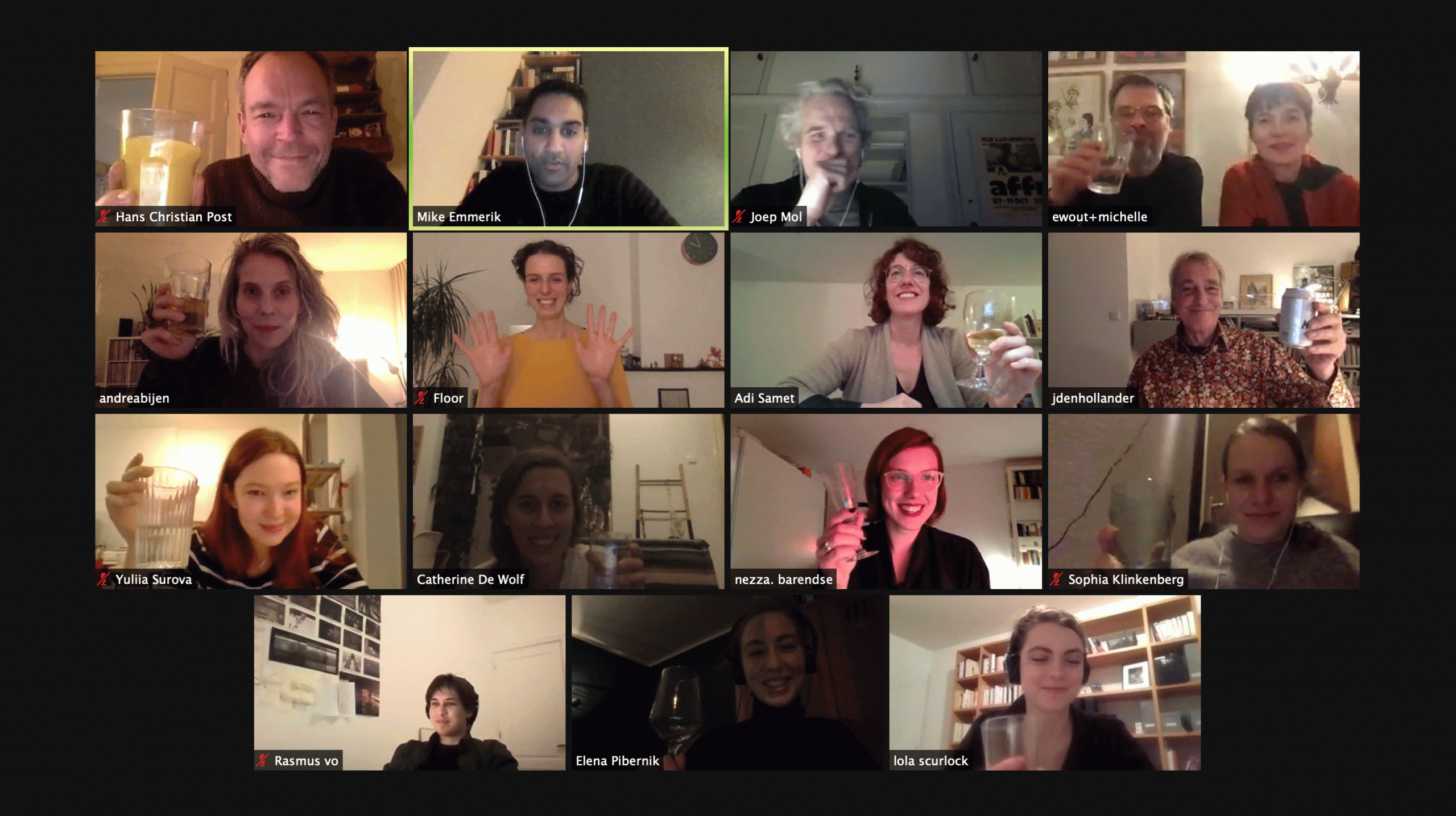
A one-week Summer School researching contemporary urban smoothness together with René Boer and Mark Minkjan of Failed Architecture, taking place from 03 - 07 August 2020.
Summer School: Against the Smooth City
For this one-week studio we teamed up with René Boer and Mark Minkjan of Failed Architecture, who guided the participants in a critical engagement with contemporary urban smoothness. After collectively developing a nuanced understanding of the smooth dimensions of central Rotterdam, participants started working in small groups on strategies and design interventions which focused on developing a critical response to the ‘smoothness’ of a certain place, and the potential qualities of ‘unsmooth’ spaces.
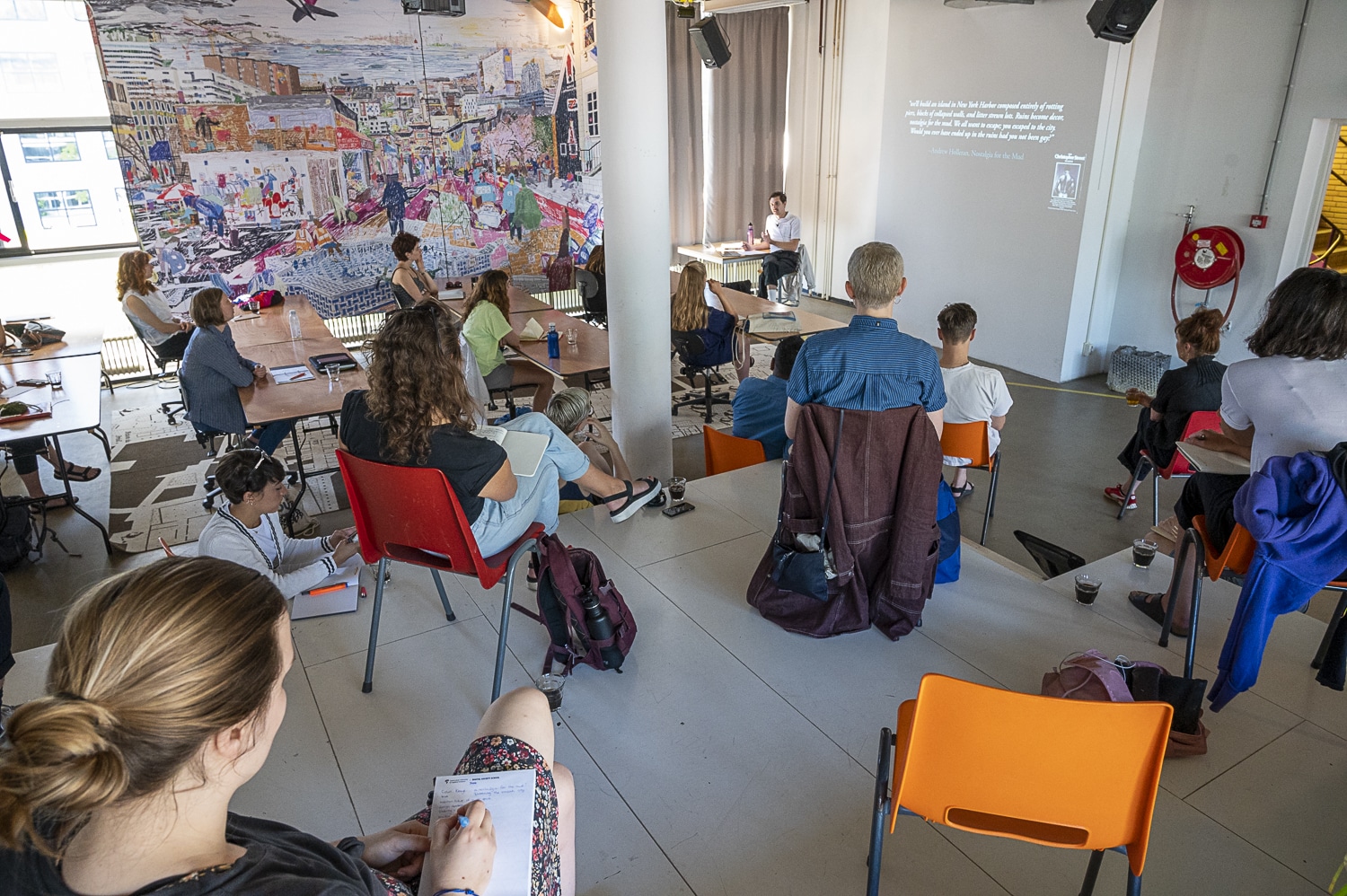
09-20 MAR 2020 with Dirk Sijmons and Herman Kossmann
CITIZENS OF THE ANTHROPOCENE
This studio was a journey along four philosophical viewpoints that one can have on the Anthropocene - the age of mankind. It was a bumpy ride, during which we embraced each perspective to the fullest and explored what it will actually mean for our daily life. We tried to look at the world completely different again each week, ultimately challenging the participants to take their own position towards the world we live in and get to know the complexities the Age of Mankind is going to confront us with. There were close encounters with philosophers, transition experts, movie directors and environmental scientists. The studio was about using our knowledge and imagination to improve, layer and enrich our worldview, to understand our own country and our own position vis a vis the new normal of the Anthropocene (e.g. climate change) and how we as humans need or want to act. Participants got the chance to work with various thinkers on the forefront of thinking about climate change.
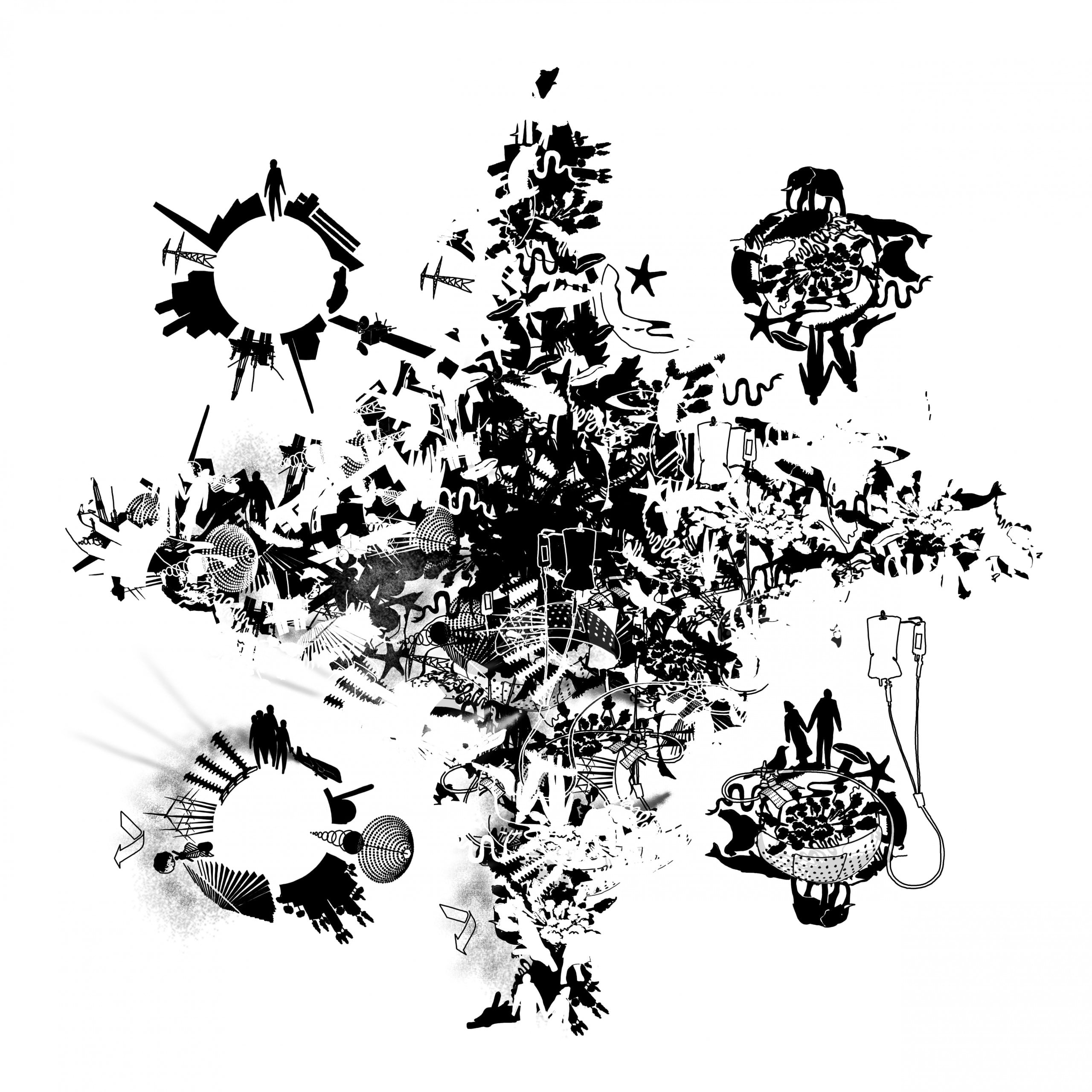
Drawing Workshop with Momoyo Kaijima
Momoyo Kaijima was the speaker at School’s Out! #10 on 28 February 2020. Momoyo is co-founder of the Tokyo-based design firm Atelier Bow-wow, which she established in 1993 together with Yoshiharu Tsukmoto. In her talk, Momoyo gave an overview of their teaching and commercial work at Atelier bow-wow which includes building, research and art projects – always trying to get as close as possible to the community they work for in both the architectural aesthetics as well as in the materialisation and construction techniques. On Saturday 29 February, from 11 - 17, there was a communal drawing workshop under the guidance of Momoyo Kaijima.
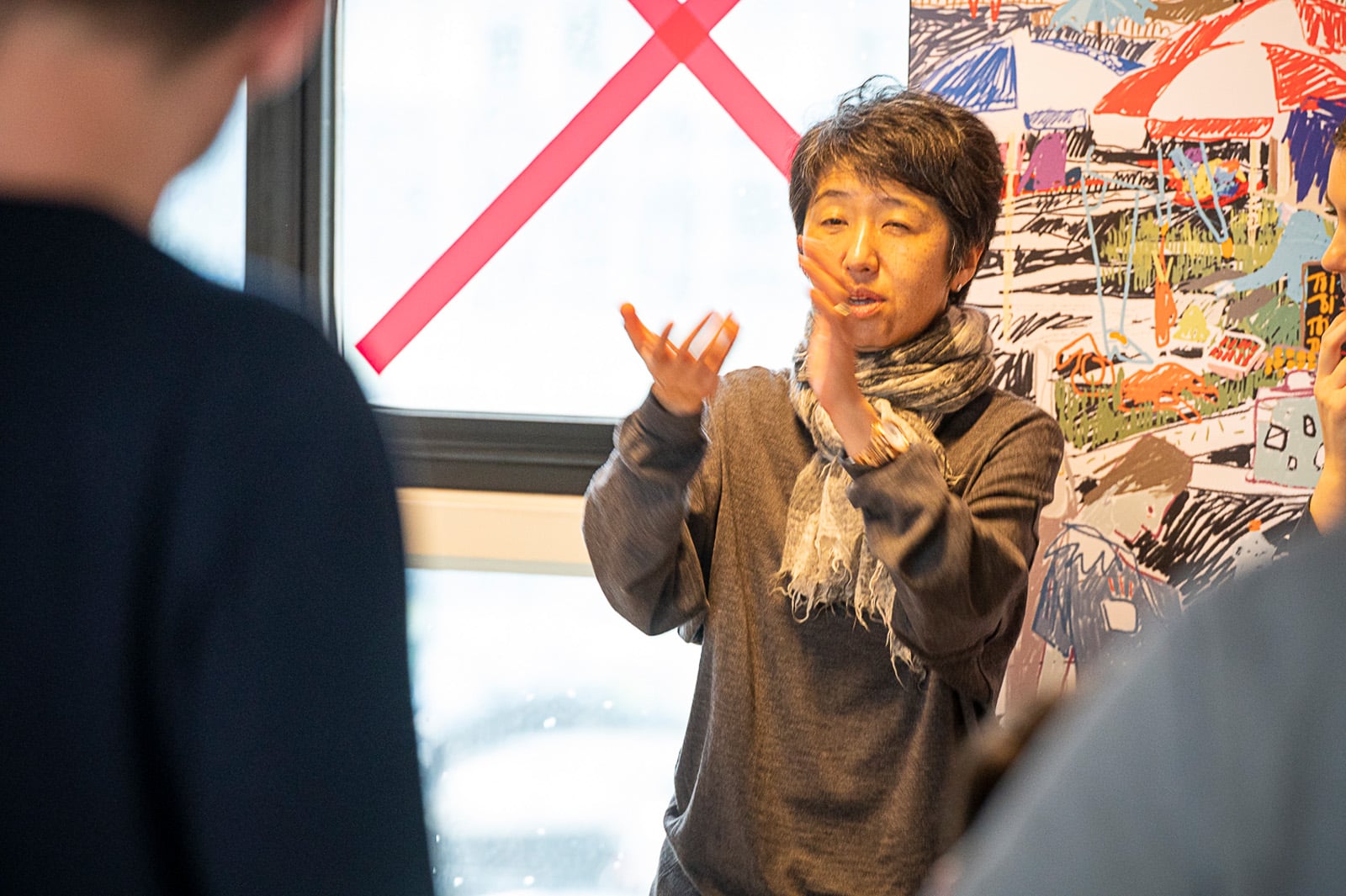
23-24 JAN 2020 Reconstructive Pottery workshop with Sam Jacob
PECULIAR MUSEUM OF SPECULATIVE ARTIFACTS
An instant museum of artifacts that speculates on the relationship between history, narration and objects.
Working with your hands and eyes, making them dirty in equal amount, you can create narratives about the city you live in, its past and its secrets. Reconstructive pottery has no theoretical framework, nor does it aspire to solve the world’s problems. It is, in fact, a form of meditation, a way to contemplate the mysteries of the urban world around us.
Sam Jacob has been showing his work in this field in art galleries over the past few years and has been willing to share his secrets. Using fragments of artefacts of an unknown origin, clay, plaster and paint are used to reconstruct them to their original form, original in the sense that you make it up yourself. Sam is principal of Sam Jacob Studio, professor of architecture at the University of Illinois at Chicago, director of Night School at the Architectural Association, and the editor of Strange Harvest. Sam’s relation with Rotterdam goes way back. In 2008 he was part of the regeneration of Hoogvliet as the designer of cultural centre de Heerlijkheid. “It’s not quite Psychedelic Brutalism, but it’s aspiring to be something like that,” says Sam Jacob about his work there. During the Reconstrutive Pottery workshop, Sam talked about the importance of the physical act, the improvisation, the impulsive gesture of getting the clay and reconstructing something. As Michelangelo saw the finished work in his marble block, the participants see in the ceramic fragments an opportunity: the opportunity to create something that does not exist, that perhaps will exist, has already existed or that exists elsewhere.
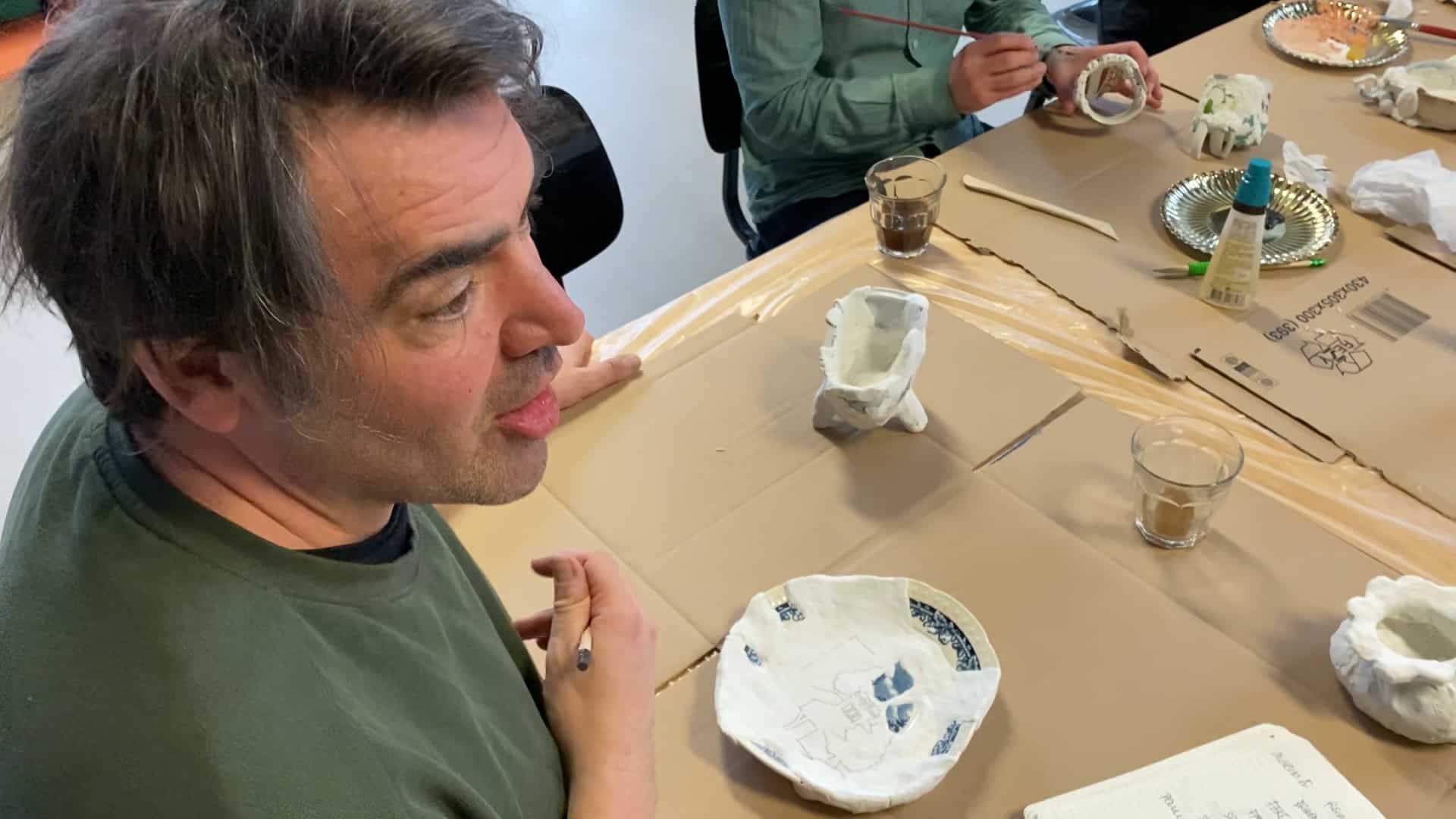
25-29 NOV 2019 Research by Photography Studio
FOSSIL ROTTERDAM
The landscapes and signs of Rotterdam's fossil economy were the subject of a week-long studio. With this course we wanted to make something that is invisible from the official imagery of the city visible again. We wanted to confront the city with its own reality, perhaps with its own impending demise, in order to force a debate. Guided by photographer Ruben Dario Kleimeer and Crimson Historians and Urbanists, the participants have documented and visualized the landscape of fossil energy and economy in the Rotterdam area. The main result of the studio was presented on 7 panels, each showing the work of one of the participants. Seen together, they present a honest portrait of a side of our western European economy that, even if it is being obscured from view, still dominates the way we live and breathe.
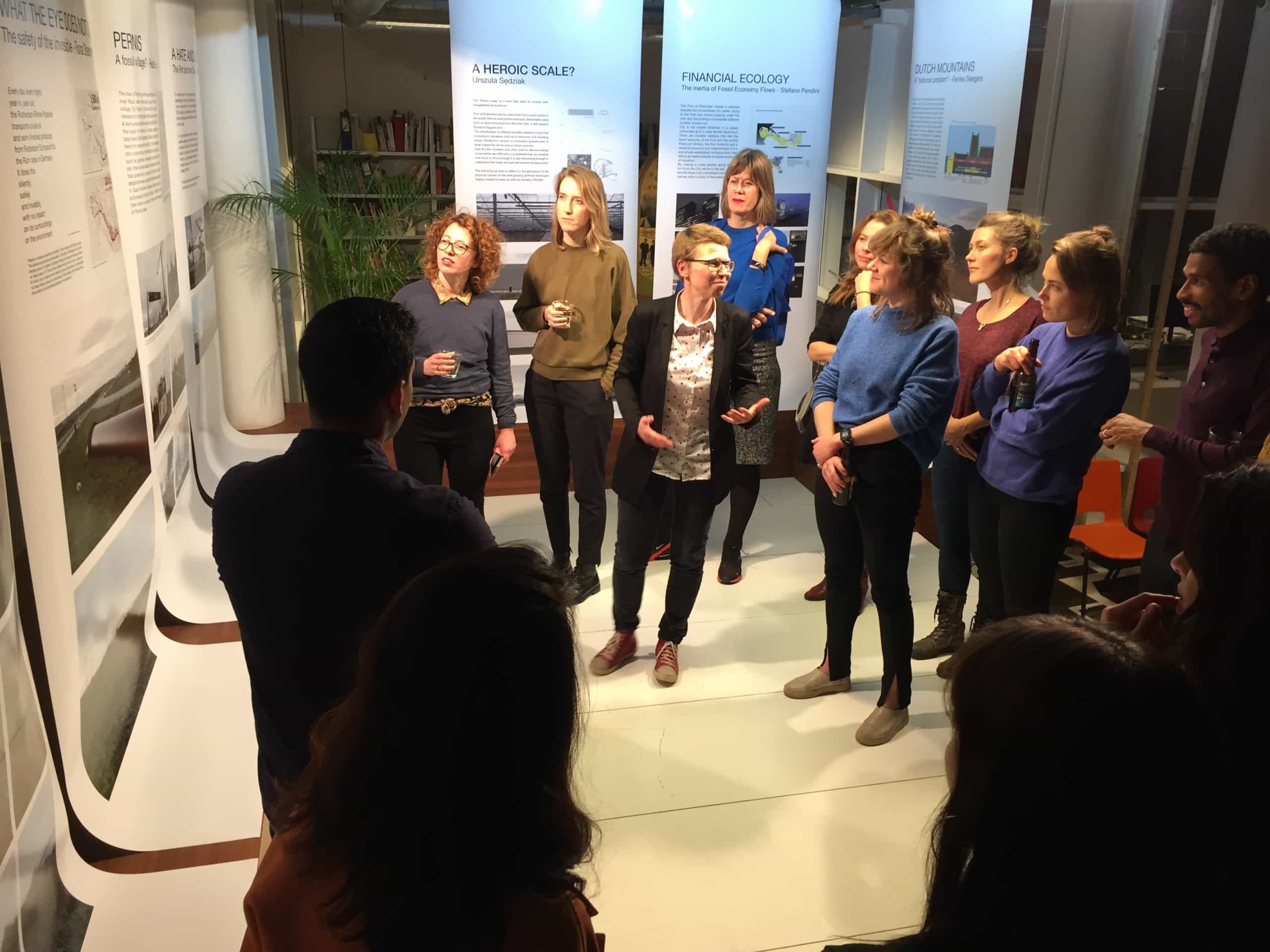
21-31 OCT 2019 studio with Powerhouse Company and RED
FOLLOW THE MONEY
In this two-week studio, organized in collaboration with Powerhouse Company, we critically explored and uncovered the role of capital in the way our cities and buildings are being shaped. We looked at the city through the lens of global capital in order to understand how we could use that view in order to shape our vision of a better city. We did this by using the classical economic analyses of the city by researching the roles of Property (land and real estate), Labour (in this case, architecture and design) and Capital (finance). During this studio we focused on Rotterdam, which, due to its partial destruction during World War II, has become a rich testing ground for real estate development experiments over the last 70 years.
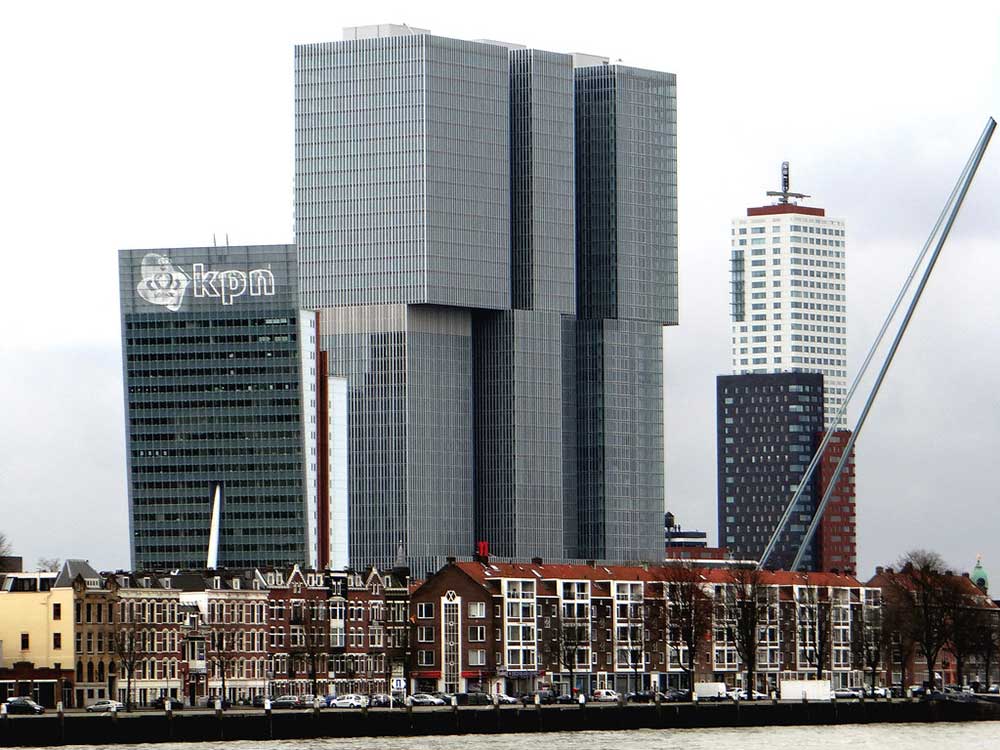
05-08 OCT 2019 Film & Architecture Studio with AFFR
Film & Architecture Studio 2019: A City of Thousand Steps
The first Film & Architecture Studio 'A City of Thousand Steps' offered a comprehensive way to use cinematic language in architecture and urban design. From research, scriptwriting and storyboarding, to filming and post production. The course focuses on learning and understanding the narrative of filmmaking and its application in the design process, a hands-on studio in which participants learned to structure stories and went through all stages of filmmaking. The studio was a condensed course that offers new ways of researching the built environment and turning this research into well-structured and gripping stories. It is a class where participants with various background were introduced to essential elements of filmmaking and learn how to relate these to architecture and the city. You can see some of the video that were produced during the Studio here
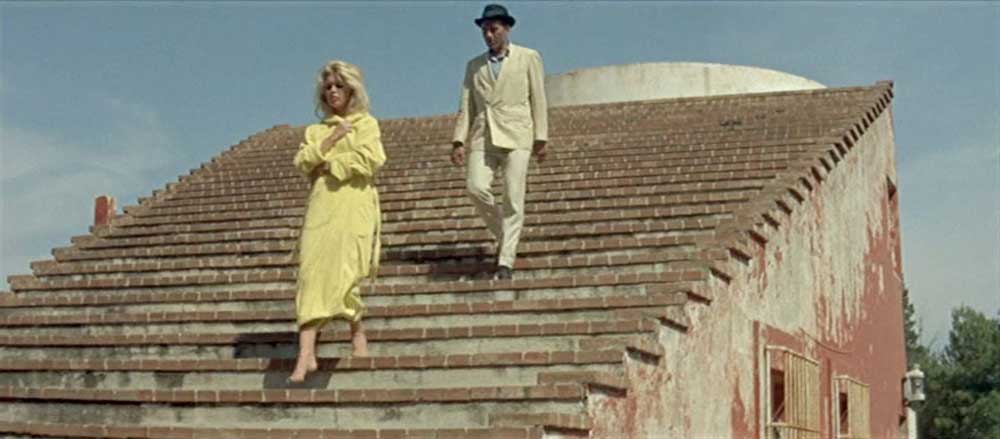
24 JUN - 05 JUL 2019 Summer School
SUMMER SCHOOL CLIMATE UTOPIA
The aim of the Summer School was to get a broad understanding of climate change in the US and Europe. To get a sense of how this radically changes the living conditions – the habitat- on the planet and in particular in landscapes affected by fire, floods, erosion, earthquakes and heat, 9 global test sites were confronted with extreme conditions, proposing new coexistence between landscape and architecture. After three weeks of research in the Fisher Centre NY, students from Syracuse School of Architecture came to Rotterdam from 24 June until 5 July 2019, to design and develop new proposals for habitats, and housing in particular, that can handle these extreme conditions. The outcome of the Summer School was presented trough an exhibition in down-town New York City, presenting a global perspective on research and design that challenges the possibilities of our human living condition. An immersive installation that depicts a new world map with adapted geographies, hybrid typologies and Anthropocene ecologies that together represent the “Village of Global Warming."
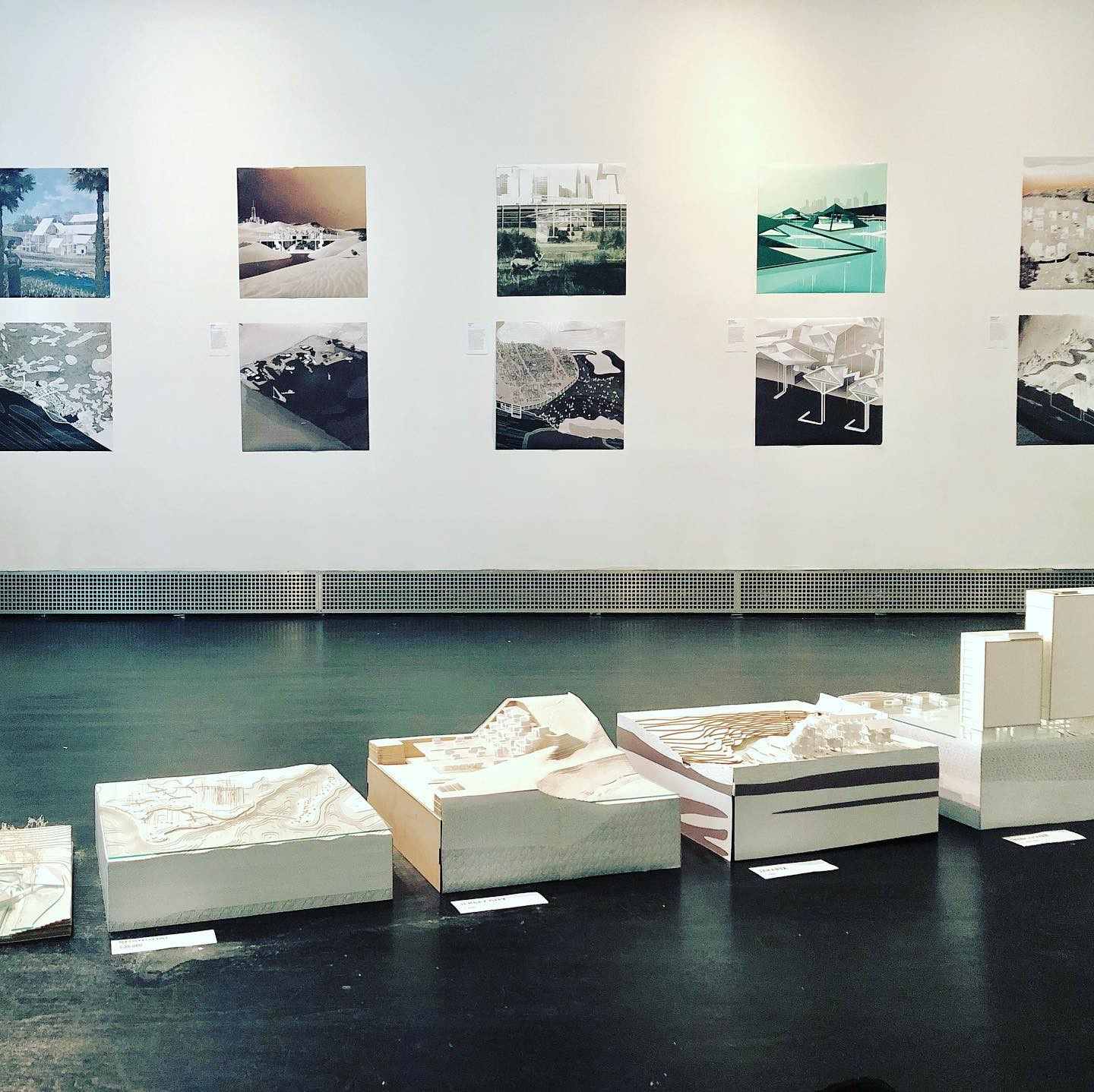
18—25 MAR 2019 Spring School
BORDERS ARE FOR CROSSING
In our 2019 Spring School we looked at the visible and invisible borders in an urban area that straddles the cities of Rotterdam and Schiedam: Oud/Nieuw Mathenesse. The area has two sharply divided zones: the first is a mid-century housing neighbourhood that has for decades been the destination of migrant workers and other immigrants to find homes, start businesses and families and gradually integrate into the Dutch economy and society. The second is a former harbour area which is going to be redeveloped into innovative and creative urban area. After extensive field research into the area, the participants developed strategies to connect both areas to each other and to achieve a more complete and more integrated migration-driven urbanism. To make a city that keeps different globalised economies and communities together, maximising their mutual benefits and the benefits to the local communities and economy. The results of the spring school were presented to a larger audience trough a spectacular exhibition, made by the participants themselves.
